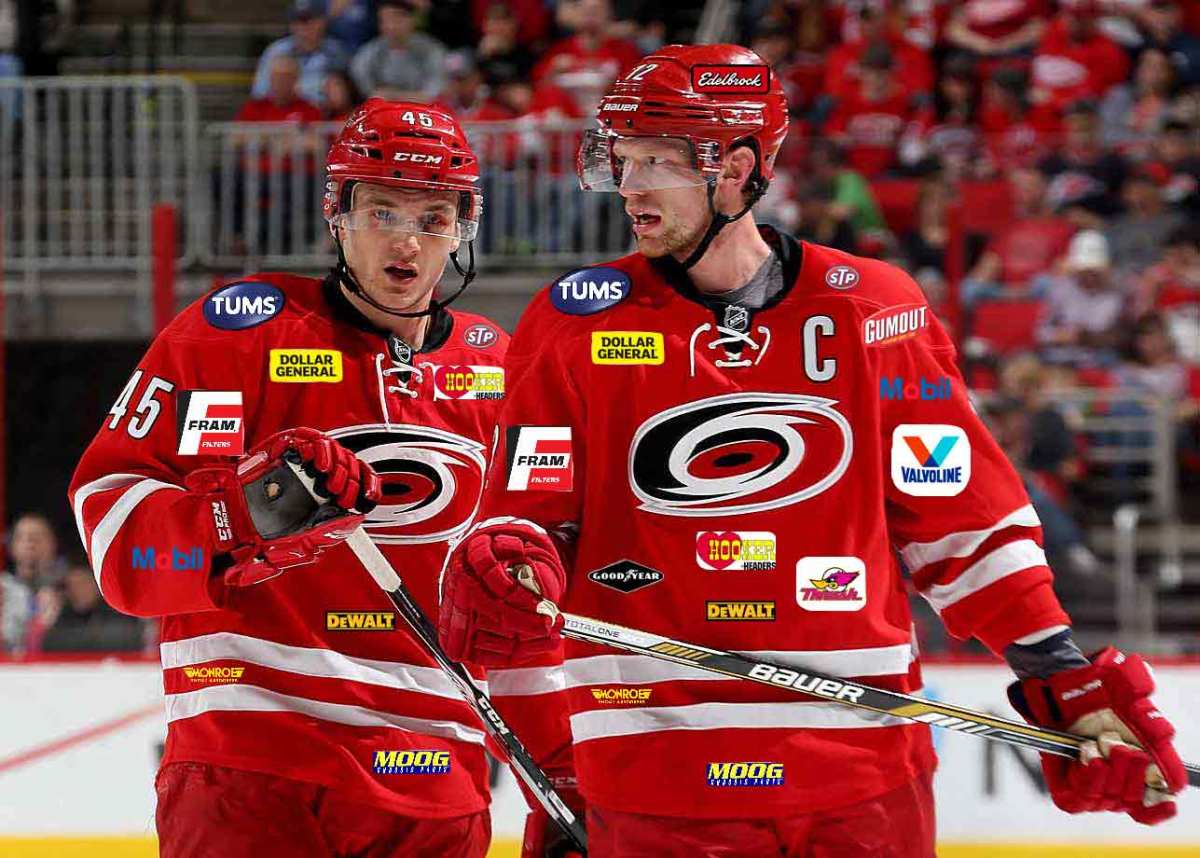California Seals documentary a labor of love, and you can help

Hockey fans have been treated to some remarkable documentaries during the past 18 months, including two takes on the Red Army-era Soviet national team and a harrowing look at the turbulent life of former Boston Bruins great Derek Sanderson. Next in line to get the feature-length treatment: the NHL’s lovable losers, the California Seals.
“I always thought the Seals story would make for a good documentary,” says filmmaker Mark Greczmiel.
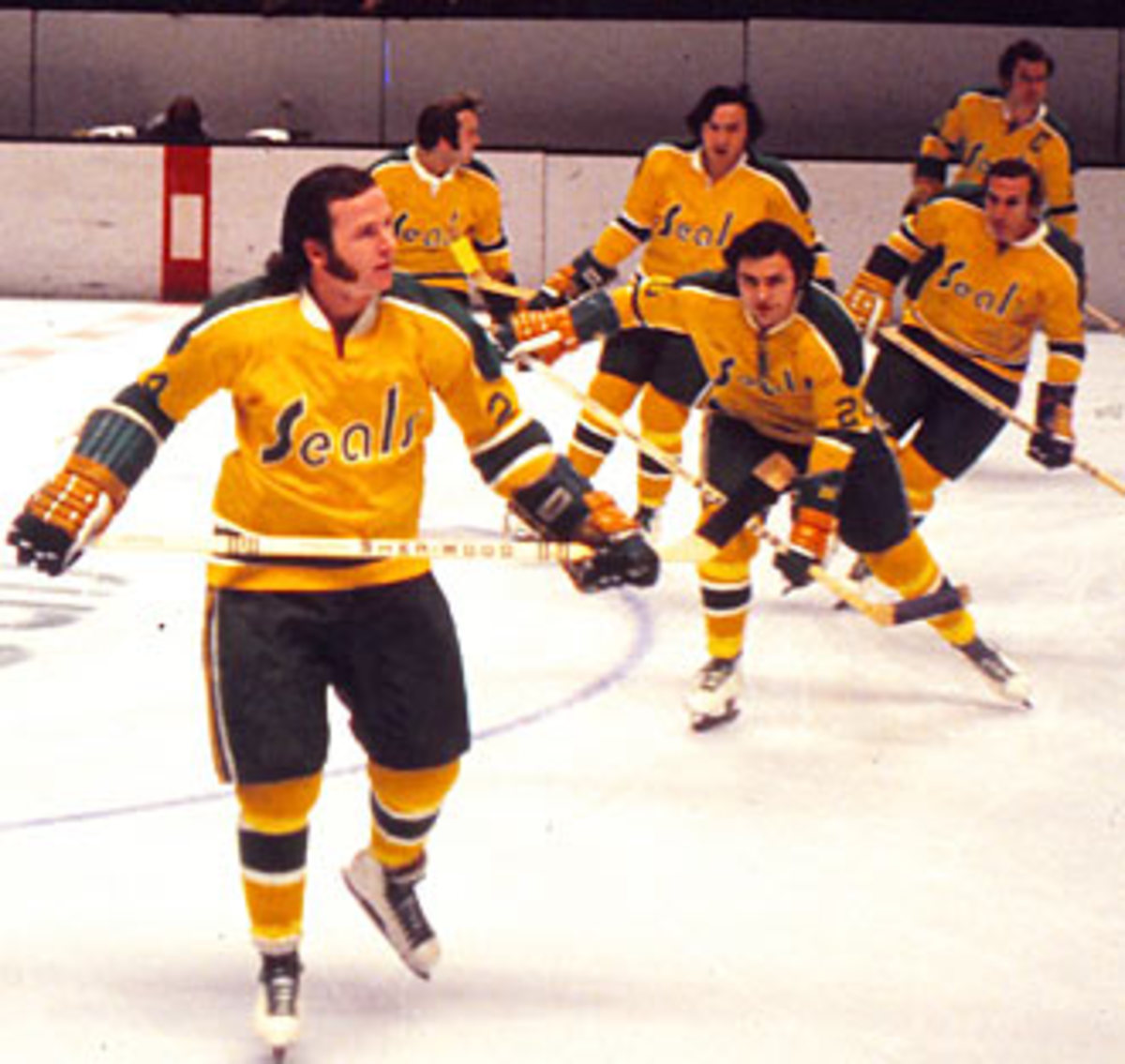
The franchise joined the NHL as part of the six-team expansion in 1967 as the Oakland Seals and survived nine tumultuous seasons in the Bay Area. Although they experienced little success on the ice, only twice making the playoffs, they’re still fondly remembered for some colorful characters on the ice and some wild shenanigans off it. And now, with the 50th anniversary of their birth on the horizon, their history is ready for a loving second look.
Greczmiel, an industry veteran who made his mark with E! Network documentaries on Lindsay Lohan, Sandra Bullock and Pink, says this is the film he was born to make. A Canadian native who moved to the Bay Area with his family at age 7, he has fond memories of attending Seals games as a child. “The Coliseum only held 12,500 fans. It was not a big arena to begin with and some nights there were only 2,500 or so in the crowd, but it was always so noisy,” he says. “I went to games in Edmonton later and there’d be 16,000 people there and it’d be quiet. It was a different experience.”
With so many sports going on in the Bay Area, hockey tended to take the back seat on the local scene. But the Seals had a hardcore following, including Greczmiel who often brought his own camera to the rink to take home movies of his heroes in action.
Even after he moved back to Canada, the Seals were never far from his thoughts. While working at a television station in Edmonton, he put together a feature on the team’s history. But he dreamed of doing something bigger. After returning to California and completing a seven-year stint at E!, Greczmiel moved into freelance work. Finding himself with some time between gigs last summer, he began work on his dream project in earnest.
Calgary Flames propose grand new arena and fieldhouse/stadium
He began by tracking down former players and driving across North America to get their first-hand takes on what it was like to be part of the team. To date, Greczmiel has interviewed more than 30 former Seals on camera, including Gilles Meloche, Dennis Maruk, Charlie Simmer, Gary Smith (the goalie in the photo at the top of the page), Walt McKechnie, Gary Simmons, Ernie Hicke, Rick Hampton and Stan Weir, along with various staffers and adherents. To a man, he says, they’ve been thrilled to take part.
“The guys are surprised that someone wanted to talk to them, but they have all been great,” Greczmiel says. “They’ve opened homes to me and shared some great stories.”
Years later, the common thread these guys share is a sense of humor, he says. “This team wasn’t very good. They didn’t win a lot of games, but they made the best of it. Walt McKechnie told me a story about one time when they were playing in Montreal, back when the Canadiens were dominating the league. He was taking the face-off and he asked the linesman if he had an extra puck. The official asked him why. He said, ‘So we can have one to play with, too!’”
Then there was the time the Seals were flying back from a game in Boston where the boys had bought a bunch a live lobsters to take home ... and someone got the bright idea to let them loose on the plane.
“There was a real sense of togetherness,” Greczmiel said. “They went through a lot, not just with the losing, but they traveled more than any other team except Los Angeles. And they had to deal with all the Charlie Finley stuff.”
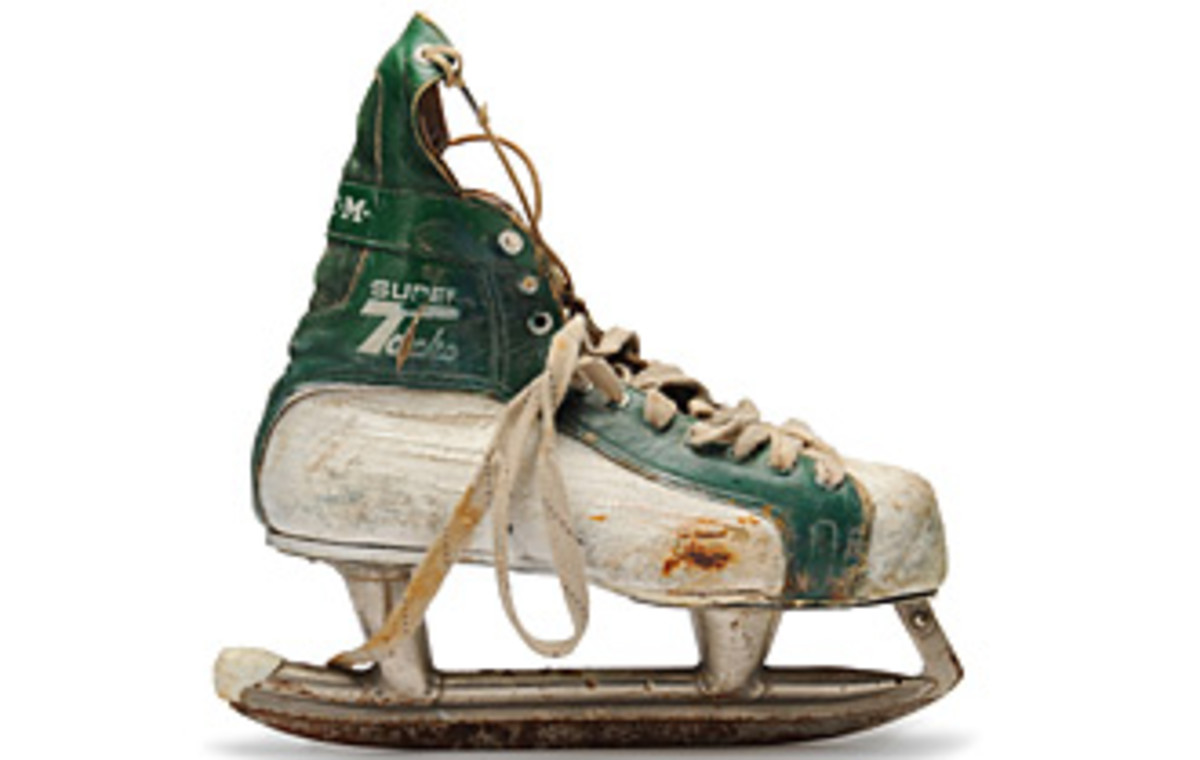
Finley, the iconoclastic owner of baseball’s Oakland A's, purchased the franchise before the 1970-71 season and immediately began impressing some of his unique ideas on the club. He changed the franchise’s name from Oakland to California, switched the team’s colors to green and yellow to match his ball club and insisted that the players’ skates be painted white. Off the ice, he made them wear green blazers and travel with green and yellow suitcases that one player said made them feel as though they were part of a circus.
Of course, Finley was also the first NHL owner to fly his players first class, so it’s not like all his ideas were bad.
While Greczmiel has most of his interviews in the can, he still has a couple of famous names on his wish list: Wayne Gretzky and Tom Hanks.
When the future Great One was taken to his first NHL game in Toronto by his grandmother, the visitors that night were the Seals. When he joined the WHA’s Indianapolis Racers at 18, his roommate was former Seals netminder Gary Smith, who remembers Gretzky asking plenty of questions about one particular incident from that game.
And Hanks? His well-known love of hockey took root when he was a youngster selling concessions at the Coliseum.
NHL's worst gut-punch losses: Kings, Avalanche and Panthers
With the fun of the face-to-face interviews (mostly) out of the way, now comes the hard work. Greczmiel has to finish the script, which then has to pass muster with the NHL in order to gain permission to use league marks. “They’ve been very helpful to this point,” he said of the league. He’s also in the process of acquiring and licensing rare Seals footage, much of which hasn’t been seen since it was first used more than 40 years ago. That takes time and money.
“Finding that footage has been a challenge,” Greczmiel says. “There’s not much around. Not many home games were televised at the time. Boston and Chicago would televise road games and so I’ve got some of that. And I’ve managed to track down some old news footage that’s really amazing.”
Greczmiel has more news coverage on the way and says he’s “cautiously optimistic” that he’ll finish the film by next spring. To hit that mark though, he could use a little help from hockey fans.
“One thing I really need is more color pictures of the team,” he said. “If anyone took pictures, especially from road games and especially from the final two seasons, I’d like to see them.”
If you have Seals material to donate, or if you’d like to make a financial contribution to assist in the completion of the project, check out the documentary’s Facebook page.
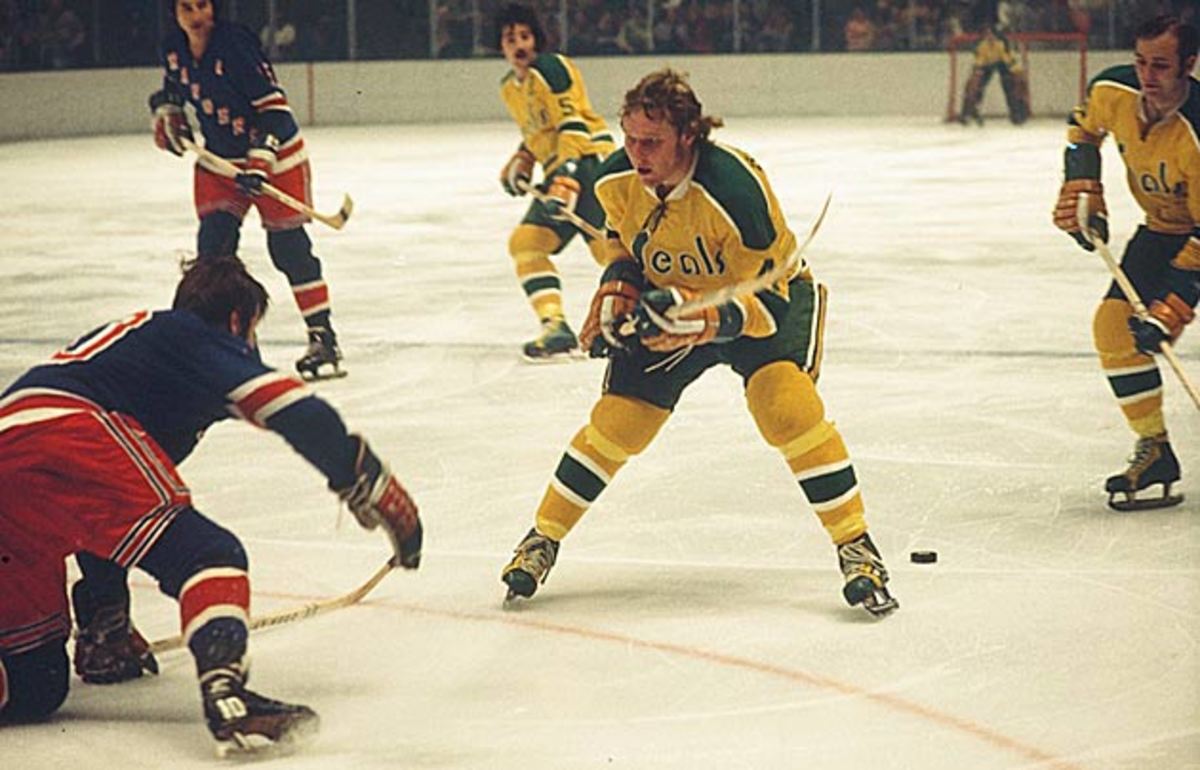
GALLERY: NHL expansion teams and their fates
NHL Expansion Teams
Los Angeles Kings | 1967
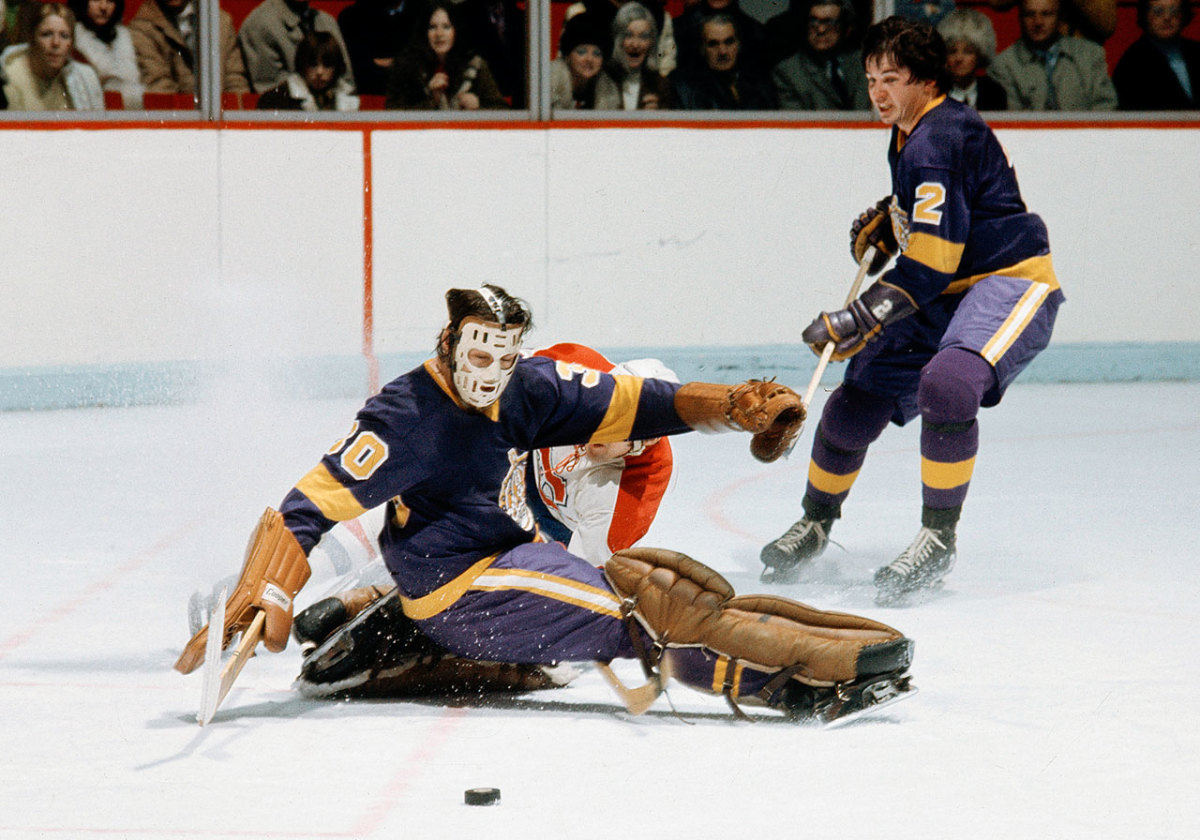
One of the six new teams the NHL added in its landmark expansion from the Original Six era, the Kings were originally owned by Jack Kent Cooke, who saw great potential in the LA area. Front office mismanagement fueled poor attendance, but a subsequent owner, Bruce McNall, put the Kings on the sports map in 1988 by acquiring Wayne Gretzky. The team reached the Stanley Cup Final in 1993, but went bankrupt in 1995. It was rescued by new owners Philip Anschutz and Edward Roski, and has since been quite successful, winning the Cup in 2012 and ’14. All-time regular season record: 1,501-1,605-424-106; Postseason appearances: 28; Stanley Cups: 2
Minnesota North Stars | 1967
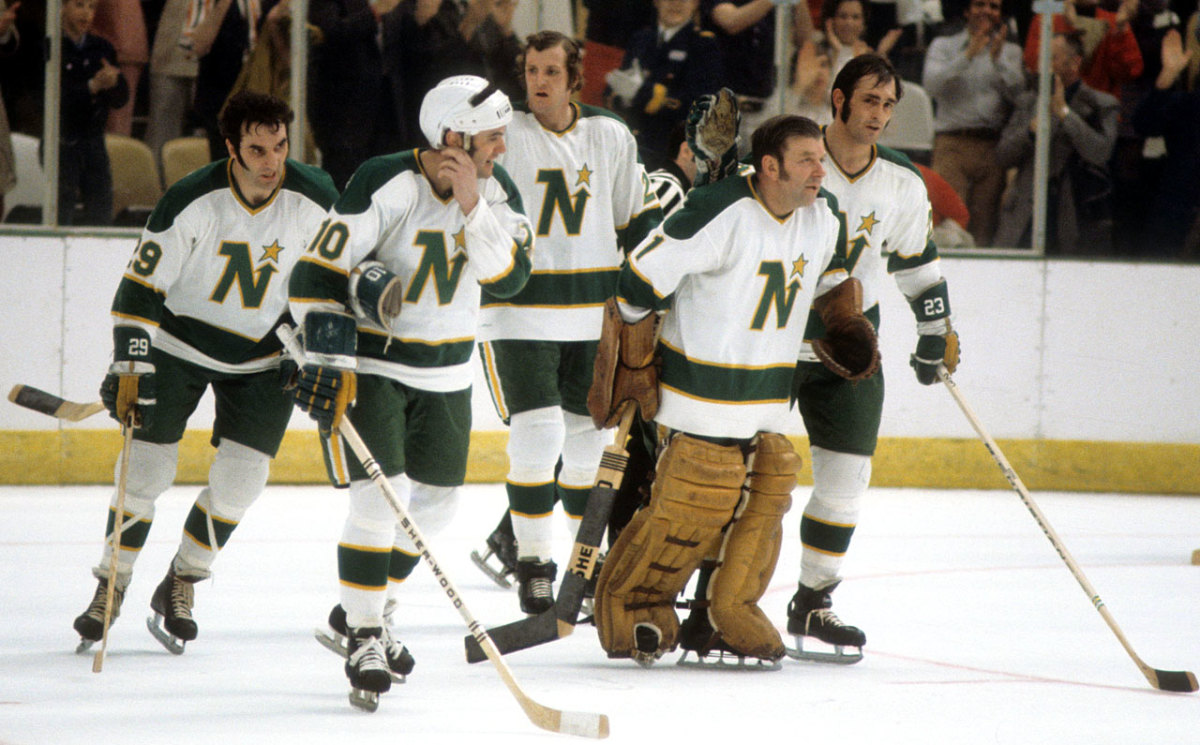
Awarded to a hockey hotbed, the North Stars began to struggle at the gate when they failed to reach the playoffs five times in six seasons (1973-79), and were merged with Cleveland Barons in a bid to keep them afloat. They recovered on the ice, reaching the Stanley Cup Final in 1981 and ’91, but remained the subject of relocation threats (Anaheim; San Francisco). They were finally moved to Dallas in 1993, becoming the Stars and winning the franchise’s first Cup in 1999. All-time regular season record: 1,572-1,510-459-95; Playoff appearances: 30; Stanley Cups: 1
California Seals | 1967
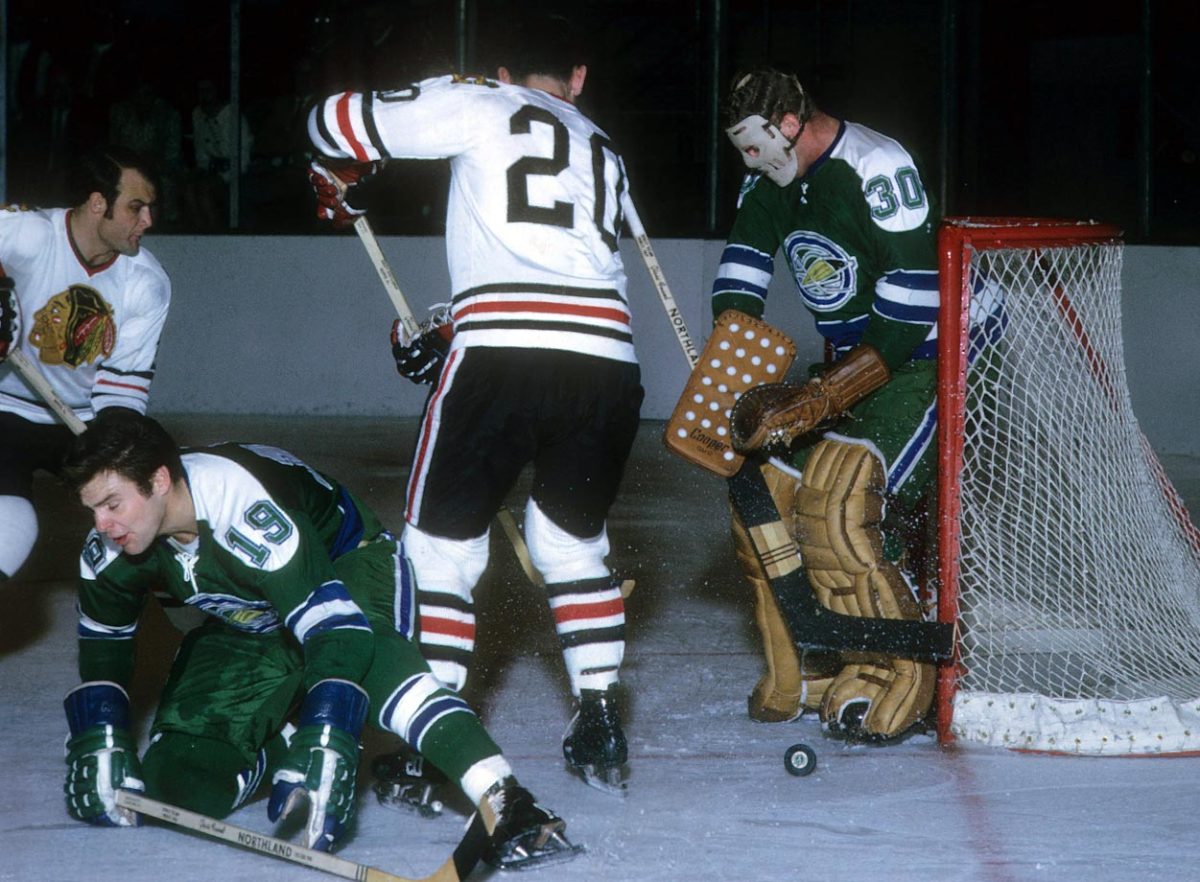
Victims of an identity crisis (their name was changed from California to Oakland during their first season, then to “Golden Seals” in 1970) and a dire shortage of talent, the Seals were never winners during their 11 seasons in the league. They made the playoffs, exiting in the first round, in their second and third seasons, but where otherwise a hot potato franchise with low attendance and frequent ownership changes. In 1976, they moved to Cleveland (the first NHL franchise to relocate since 1935) and became the Barons, only to be merged with the struggling Minnesota North Stars two years later, thus becoming the only NHL team to go under since the Brooklyn Americans in 1942. All-time regular season record: 229-488-141-0; Playoff appearances: 2; Stanley Cups: 0
Philadelphia Flyers | 1967
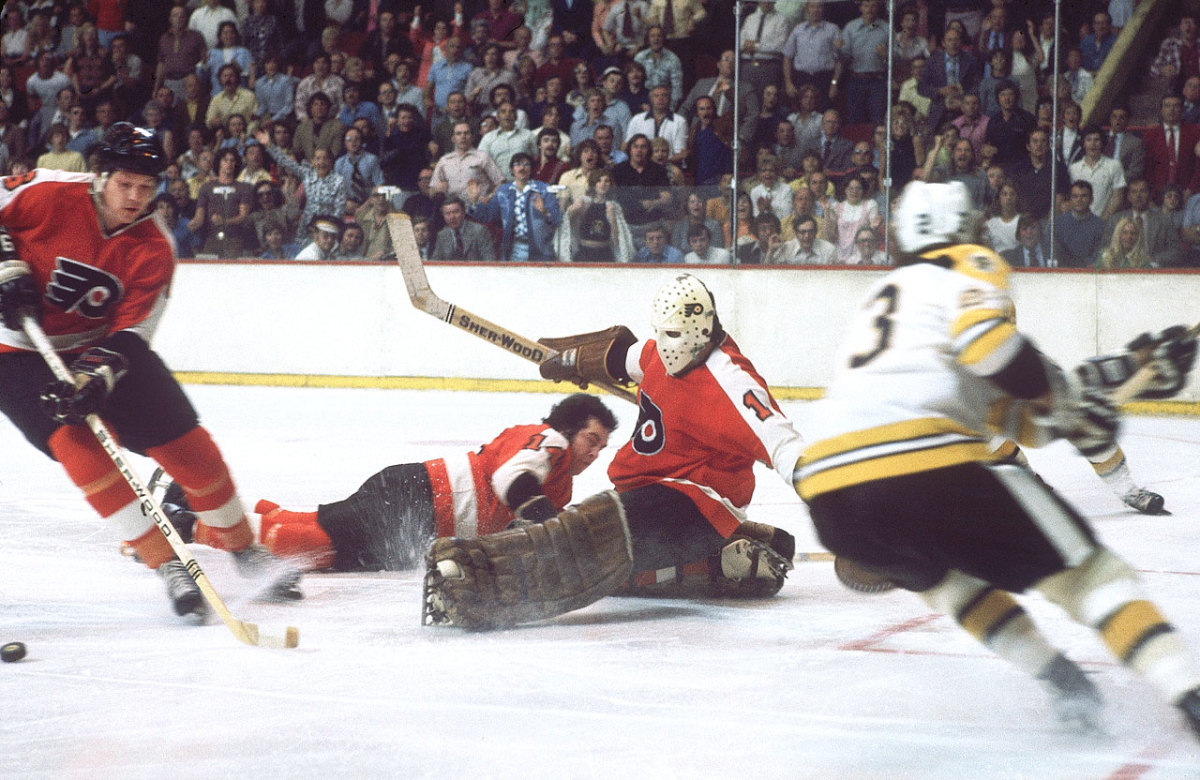
The most consistently stable and certainly one of the most successful original expansion era franchises, the Flyers are still controlled by original owner Ed Snider. They began life in the NHL’s new “West Division” which housed the six expansion teams the league added in 1967, and have since made eight Stanley Cup Final appearances, winning twice. All-time regular season record: 1,821-1,254-457-104; Postseason appearances: 37; Stanley Cups: 2
Pittsburgh Penguins | 1967
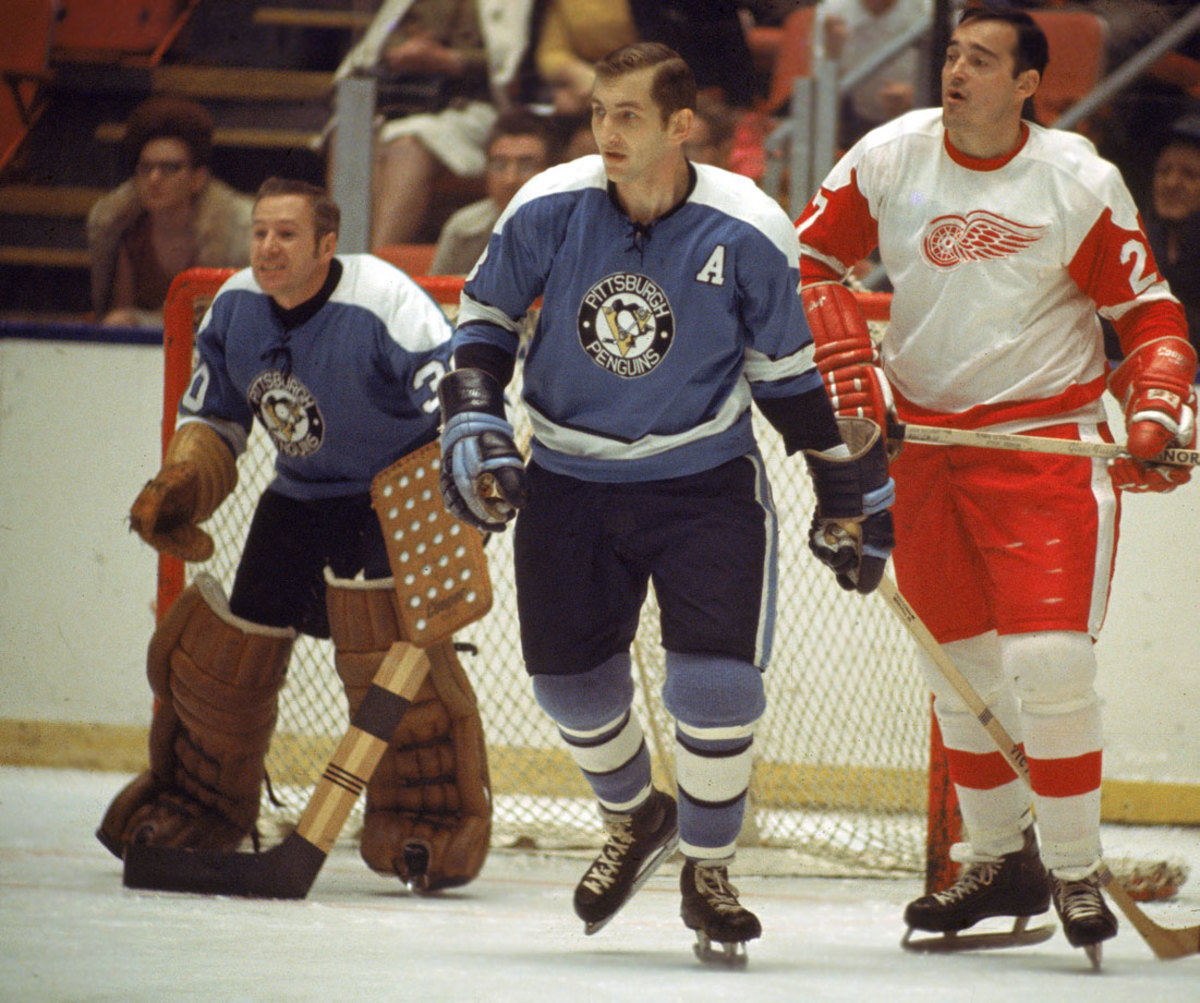
The Pens have seen great highs and dramatic lows during their 47 years in the NHL. Blessed with superstars such as Mario Lemieux, Jaromir Jagr and Sidney Crosby plus four Stanley Cup Final appearances and three championships, they’ve also suffered dire and sometimes prolonged droughts on the ice. They were nearly moved to Seattle in the ‘70s, and by the mid-2000s were in the throes of financial collapse and on the verge of being relocated (possibly Kansas City or Hamilton, Ontario), but the arrival of Crosby in 2005, Lemieux’s ownership, and a new arena have restored stability. All-time regular season record: 1,594-1,566-383-93; Playoff appearances: 29; Stanley Cups: 3
St. Louis Blues | 1967
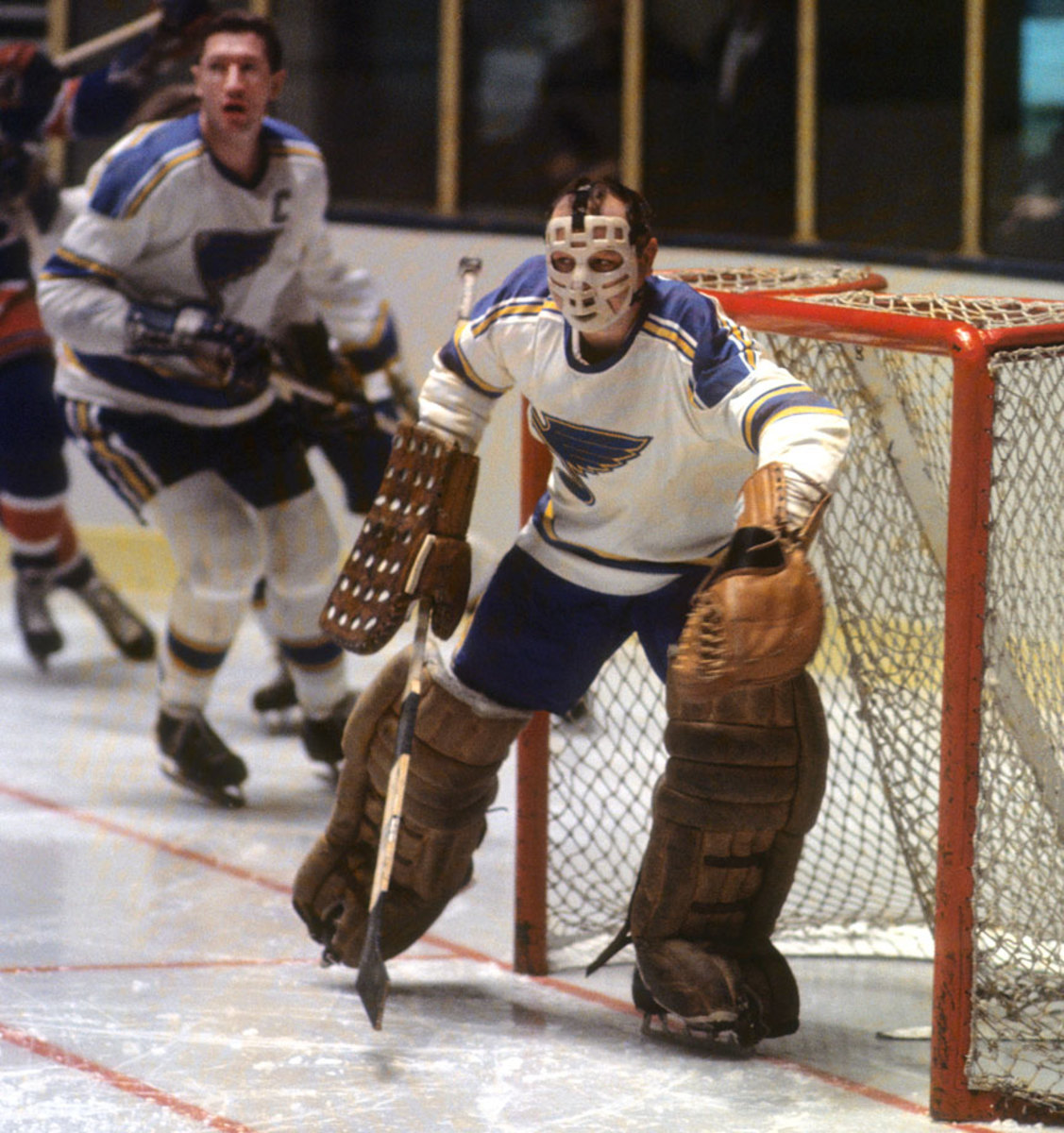
Ultimate survivors, the Blues began NHL life by representing the expansion West Division in the Stanley Cup Final for three straight seasons, but they remain the only existing member of the Class of ’67 that has not won the Cup. By the 1970s, they began experiencing persistent financial difficulties that led to a succession of ownership changes. At one point in the early ‘80s, the Blues looked like a candidate for contraction, and the NHL took over the team after preventing it from being relocated to Saskatoon. Last season, Forbes ranked St. Louis 29th in value, at $185 million. All-time regular season record: 1,625-1,469-432-110; Postseason appearances: 38; Stanley Cups: 0
Buffalo Sabres | 1970
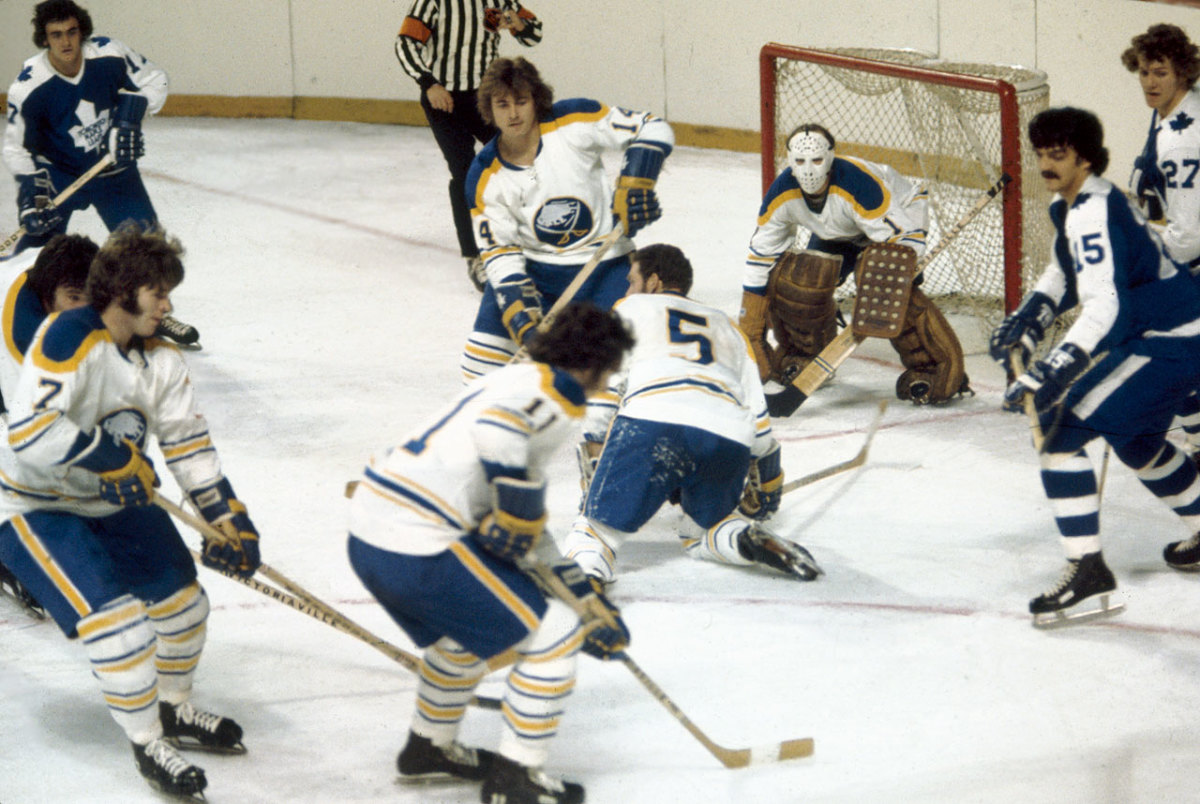
Blessed with one of the most passionate fan bases in all of sports, the Sabres have had their ups and downs, making two Stanley Cup Final appearances and, since the late ‘90s, surviving financial difficulties, ownership changes, and the possibility of being relocated. Current owner Terry Pegula, a lifelong fan, has vowed to rebuild the struggling team, which is still seeking its first Cup. All-time regular season record: 1,611-1,291-409-99; Postseason appearances: 29; Stanley Cups: 0
Vancouver Canucks | 1970
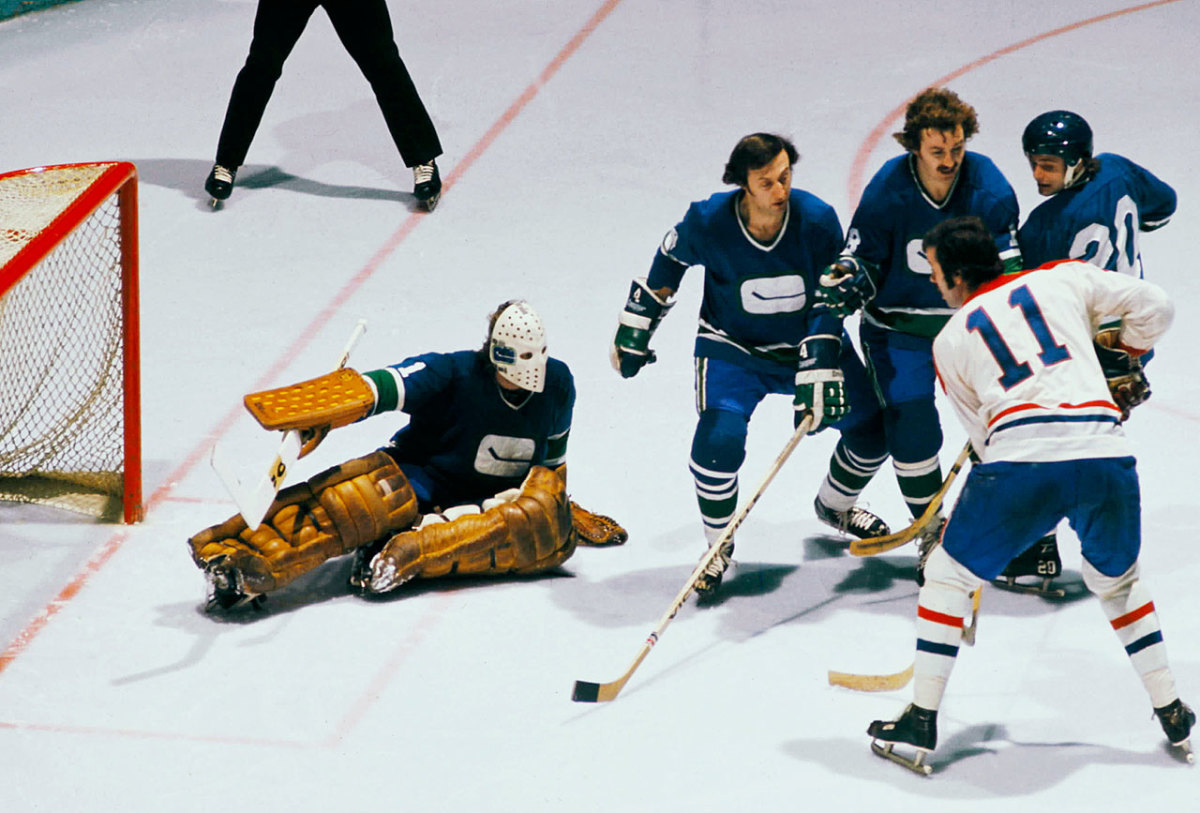
After Vancouver nearly landed the struggling Oakland Seals, the Canucks became the city’s first major pro hockey team since the Millionaires of the PCHL folded in 1926. The franchise—which remains stable and is ranked by Forbes as the NHL’s fourth most-valuable ($700 million)— has survived stretches of losing seasons and a threat from the WHA’s Vancouver Blazers, while making three Stanley Cup Final appearances and occasionally breaking the hearts of its devoted and often demanding fans. All-time regular season record: 1,415-1,504-391-100; Postseason appearances: 26; Stanley Cups: 0
Atlanta Flames | 1972
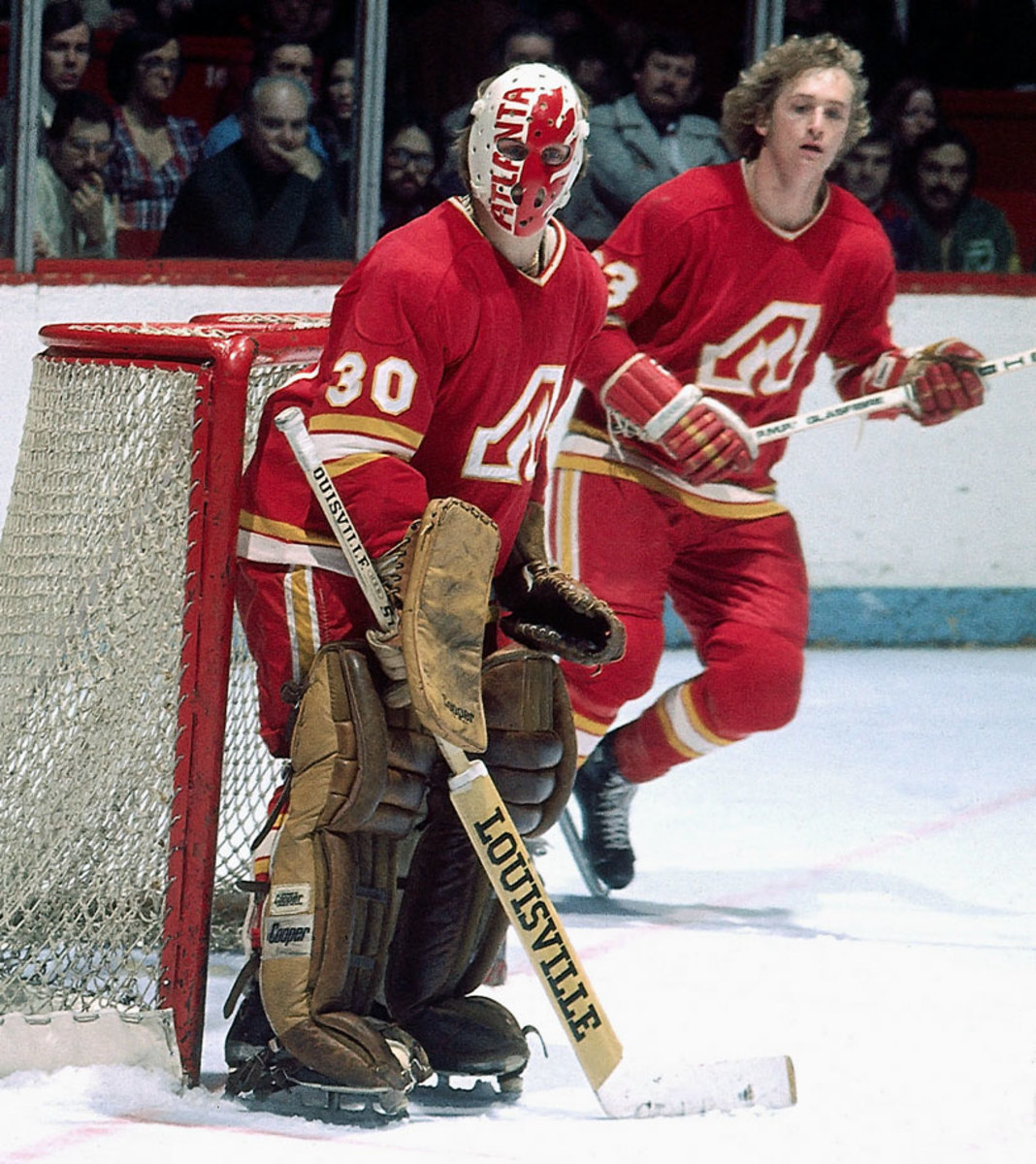
The NHL’s first foray in Atlanta—the owners of the NBA’s Hawks were awarded the franchise—did not go well despite the Flames making the playoffs in six of their first eight seasons. Five first round exits didn’t help, but the city’s fans were apathetic and the team struggled financially, thanks in part to receiving little TV revenue. In 1980, principal owner Tom Cousins sold the team to avoid bankruptcy. It was hoped that the Flames would remain in Atlanta, but buyer Nelson Skalbania moved them to Calgary in time for the 1980-81 season. All-time regular season record: 1,491-1,279-379-105; Postseason appearances: 26; Stanley Cups: 1
New York Islanders | 1972
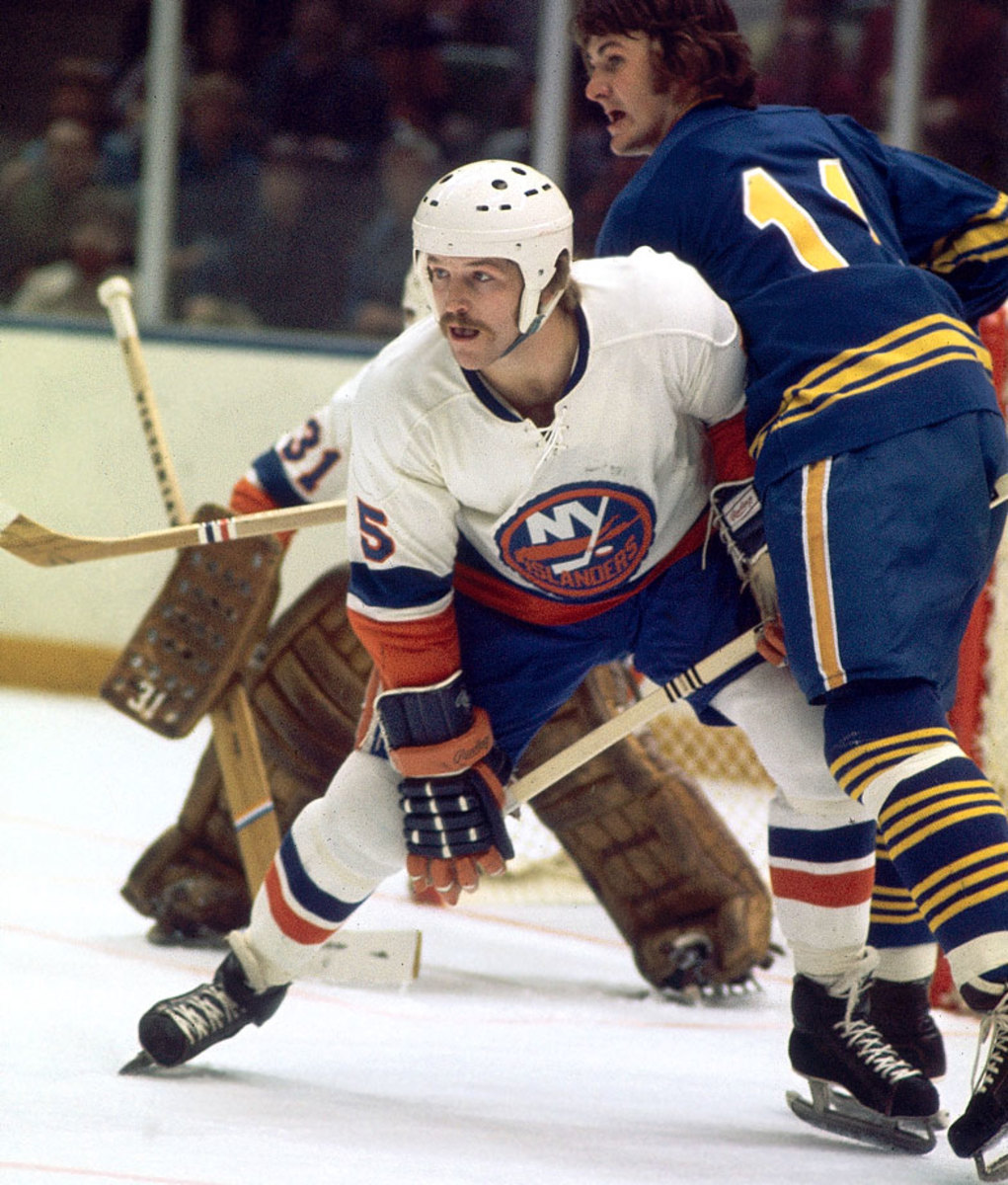
Their first season was an epic 12-60-6 disaster, but the team soon began a meteoric rise into a dynasty that won four successive Stanley Cups during a run of five straight final appearances (1980-84). After that, owner John O. Pickett, who had signed a disastrous long-term arena lease that denied the team badly needed revenue, moved to Florida and handed control of the Isles to the first of a succession of dubious owners that included notorious con man John Spano. A long descent into mediocrity ensued. Bleeding red ink, current owner Charles Wang, unable to replace the crumbling Nassau Coliseum, decided to move the Isles to Brooklyn for the 2015-16 season. All-time regular season record: 1,405-1,399-347-103; Postseason appearances: 22; Stanley Cups: 4
Kansas City Scouts | 1974
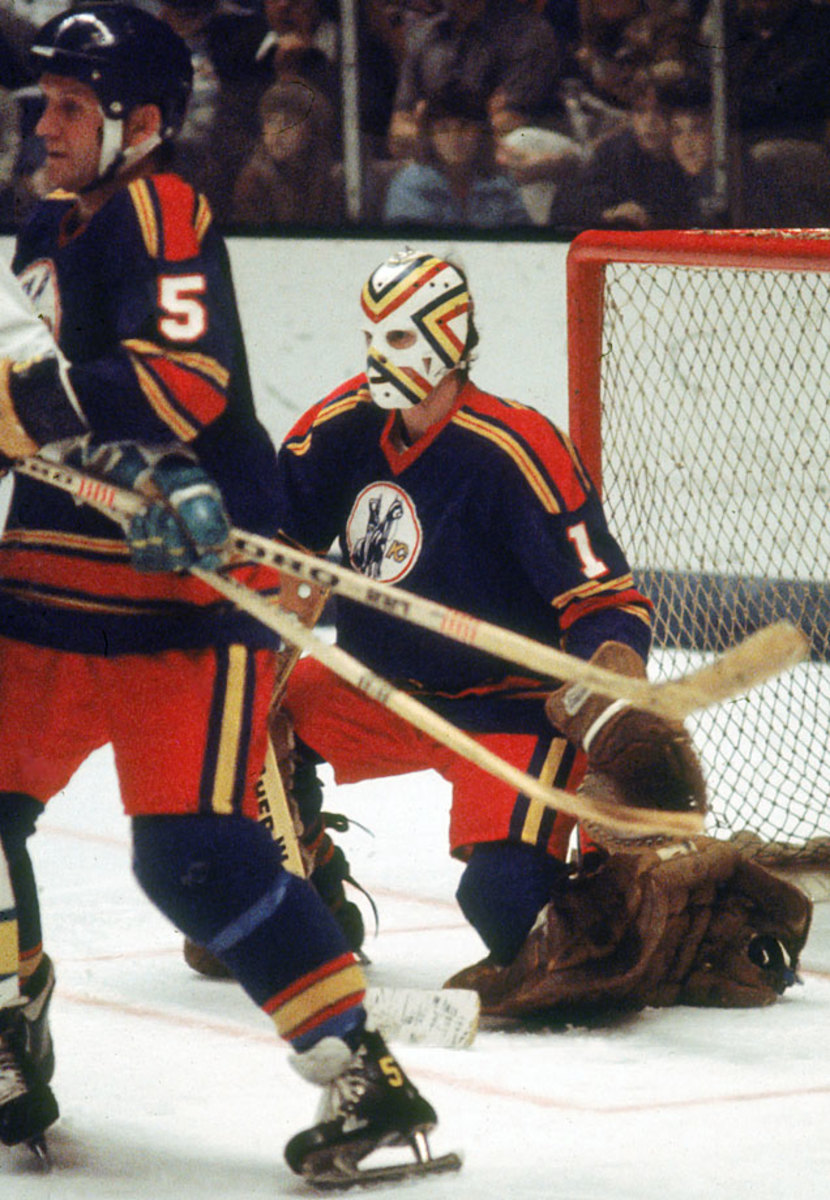
True nomads, the Scouts departed for Colorado and became the Rockies after two disastrous, sparsely attended seasons in Kansas City during which they won only 27 of their 160 games. They weren’t much better in their new home, reaching the playoffs once before moving to New Jersey in 1982 and becoming the Devils, who drew the ire of Wayne Gretzky for being, as he famously called them, “a Mickey Mouse franchise.” Since then, the team has fared much better on the ice, if not at the box office where it still struggles. The Devils have had their share of ownership changes and in 1995 were rumored to be moving to Nashville. All-time regular season record: 1,314-1,361-328-95; Postseason appearances: 22; Stanley Cups: 3
Washington Capitals | 1974
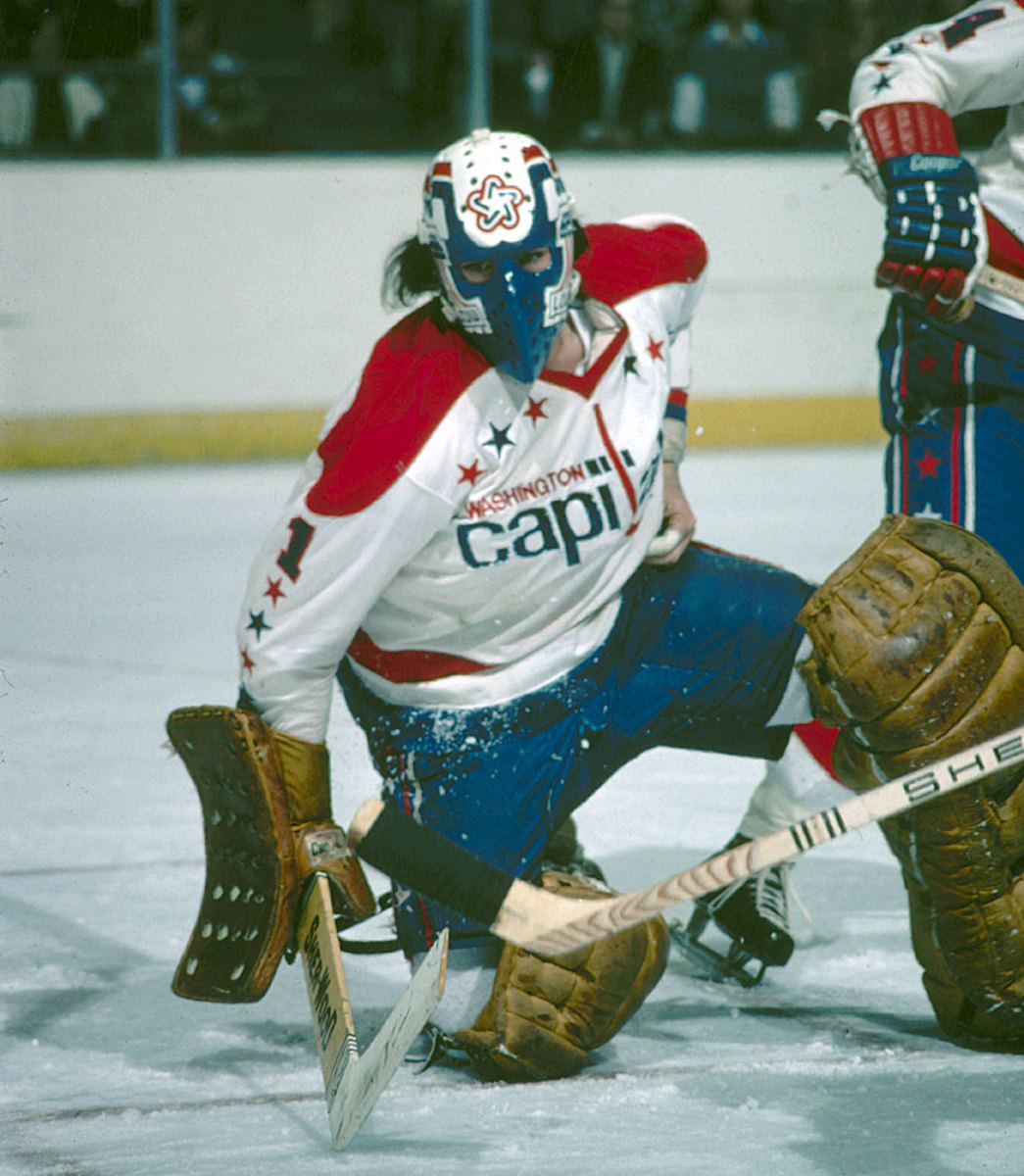
The Caps survived (barely) a horrid 8-67-5 first season that saw them set a record for futility. Blessed with a deep-pocketed owner (Abe Pollin), they hung on and eventually became a competitive team, though by the early 80s they were in danger of being relocated. A 14-year streak of playoff appearances helped keep them in D.C., and in 1998 they reached the Stanley Cup Final. Owned by the equally wealthy Ted Leonsis since 1999, the Capitals remain a stable if frustrating franchise that frequently fails to make the most of the considerable talent it puts on the ice. All-time regular season record: 1,370-1,317-303-108; Postseason appearances: 24; Stanley Cups: 0
Edmonton Oilers | 1979
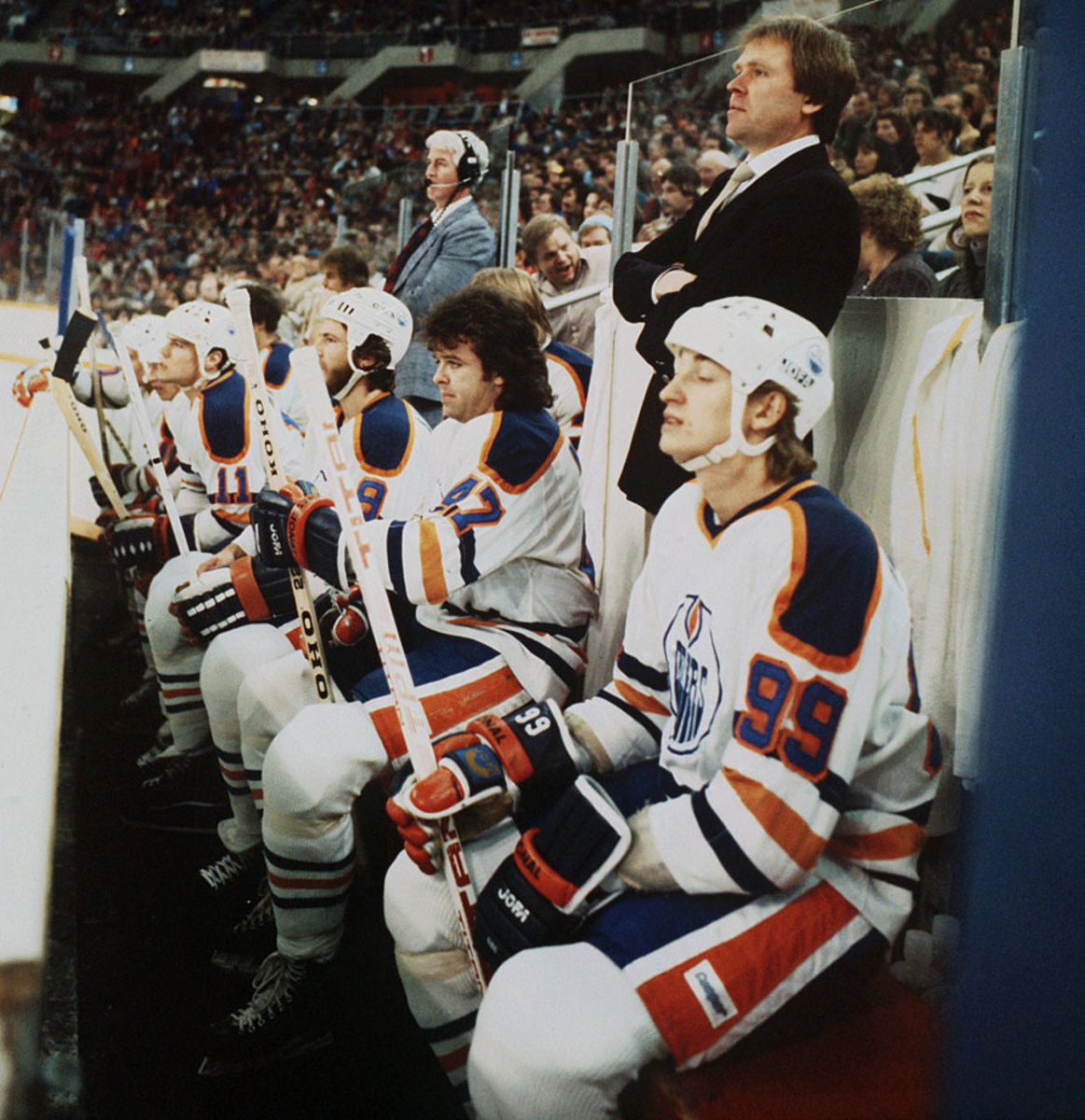
The NHL absorbed four WHA teams in 1979 and the Oilers are the only one that’s still in its original city. The team dominated the league in the 1980s, winning five Stanley Cups in six years, but its been a bumpy road ever since. A series of ownership changes and a recent arena dispute led to rumors of relocation, possibly Seattle. On the ice, the team has been a doormat in recent years despite a spate of high draft picks. All-time regular season record: 1,224-1,1102-262-110; Postseason appearances: 20; Stanley Cups: 5
Hartford Whalers | 1979
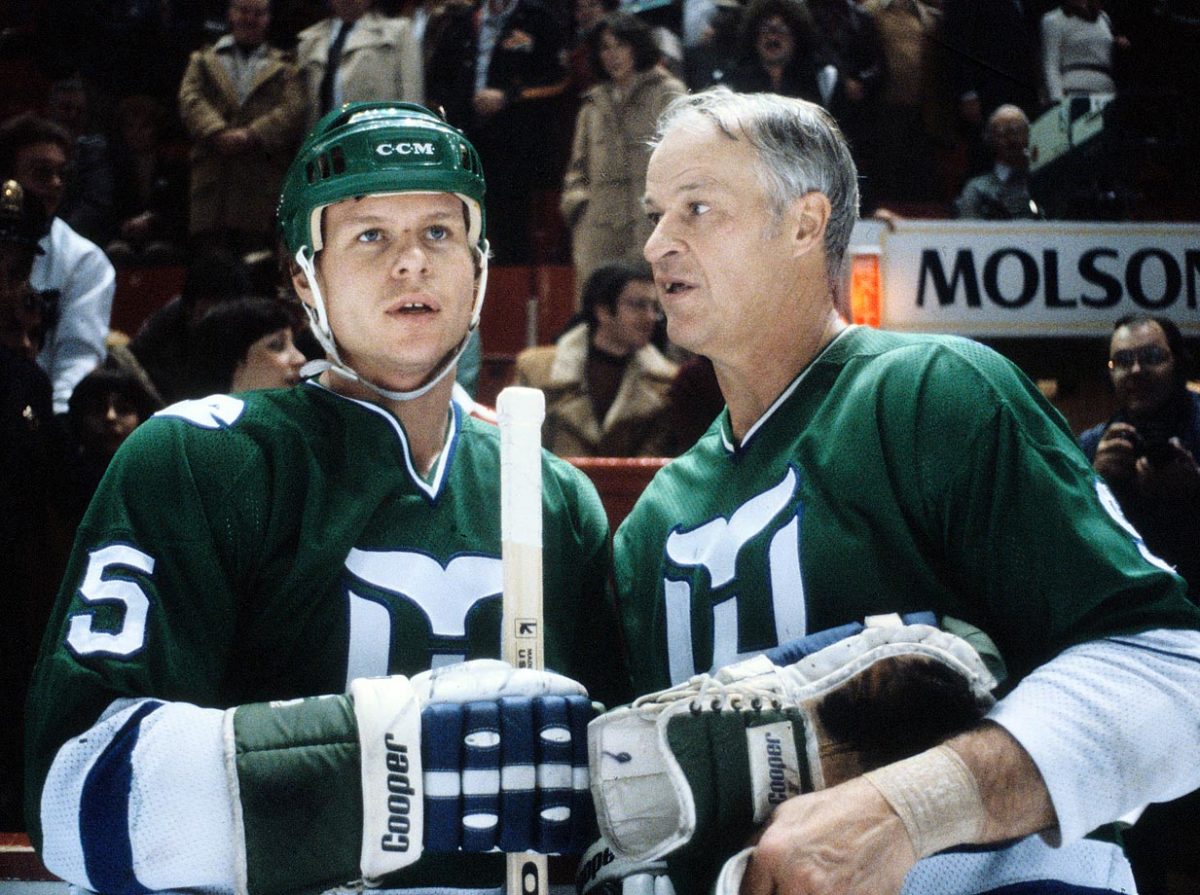
Absorbed from the WHA in 1979; the Whalers featured the 51-year-old Gordie Howe and went on to develop a reputation as lovable losers who advanced as far as the second round of the playoffs only once. After moving to Carolina in 1997 and becoming the Hurricanes, the franchise went on to make two Stanley Cup Final appearances, winning the championship in 2006. However, it languishes at 27th on Forbes’ franchise value list (at $187 million). Die-hard Whalers fans remain, and there is occasional talk of the NHL returning to Hartford. All-time regular-season record: 1,104-1,230-263-101; Postseason appearances: 13; Stanley Cups: 1
Quebec Nordiques | 1979
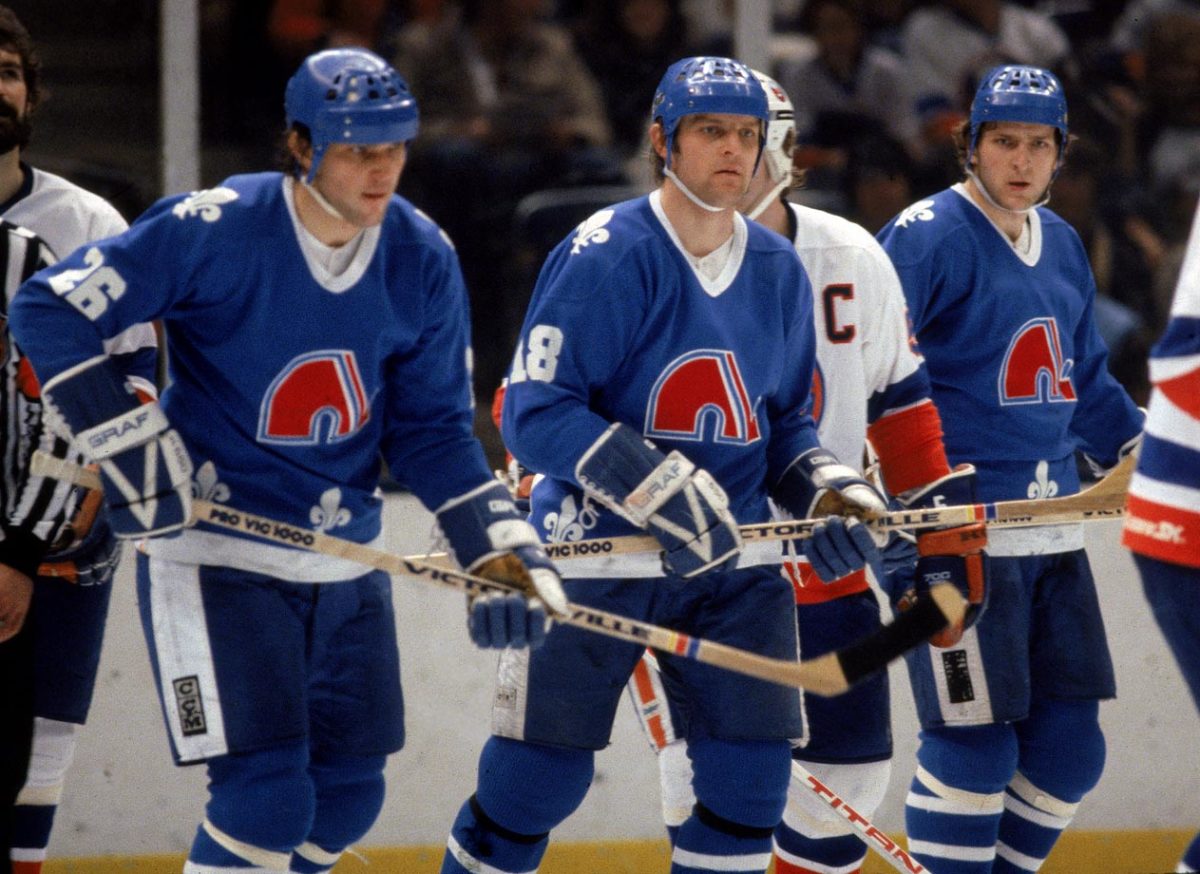
Yet another of the four 1979 additions from the WHA, the Nordiques boasted some very competitive teams in the 1980s (two reached the conference finals) and a heated rivalry with Montreal. But after six straight losing seasons, including a 12-61-7 mark in 1989-90, the franchise fell into financial difficulties that remained despite some vastly improved teams. In 1995, the Nords moved to Colorado, winning the Stanley Cup during their first season as the Avalanche. The franchise struggled at the gate in recent seasons, but a promising 2013-14 season improved the outlook. All-time regular-season record: 1,242-1,108-261-87; Postseason appearances: 22; Stanley Cups: 2
Winnipeg Jets | 1979
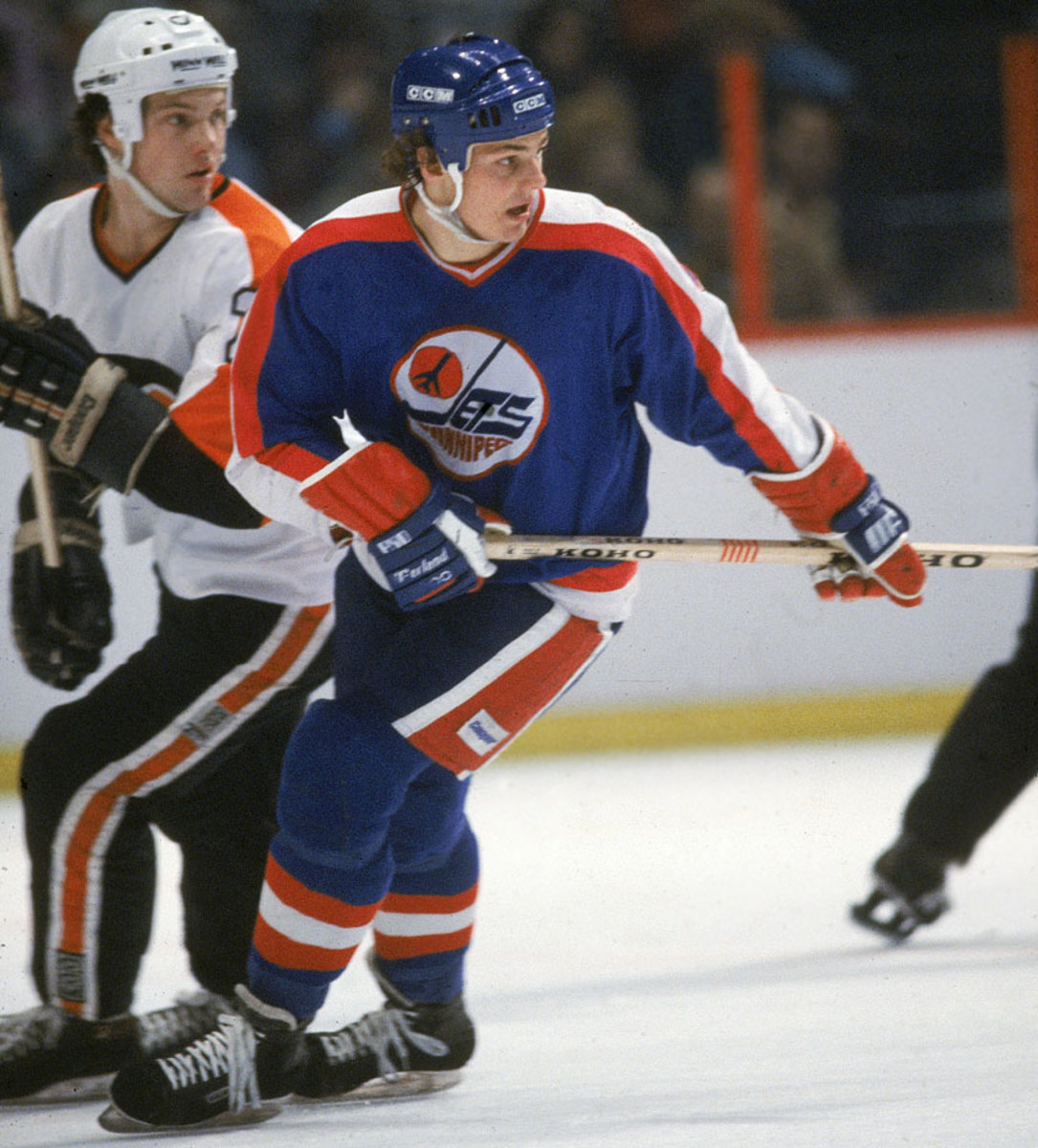
This original WHA franchise was absorbed by the NHL and beloved during its tenure in Winnipeg, a small market that took a brutal hit from a rise in player salaries in the ‘90s. Rumored to be moving to Minnesota, the Jets ended up in a suburb of Phoenix, Arizona in July 1996 and were renamed the Coyotes. Saddled with an arena in an inconvenient location for its fans, the team has endured years of financial hardship and was taken over by the NHL after it went bankrupt. A leading candidate for relocation, the Yotes remain in Arizona after being sold to a new ownership group in August 2013. All-time regular season record: 1,121-1,206-266-105; Postseason appearances: 16; Stanley Cups: 0
San Jose Sharks | 1991
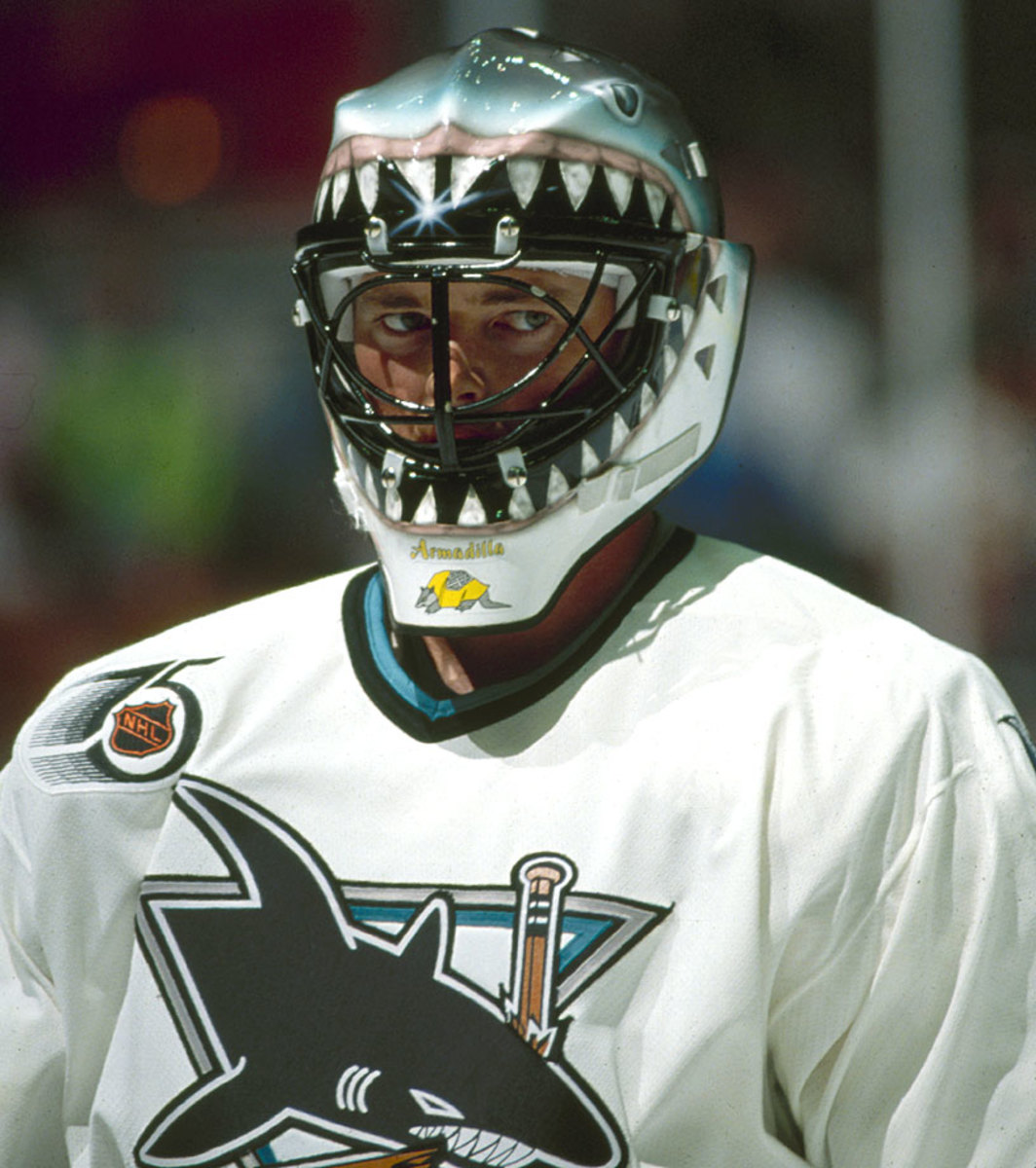
The NHL returned to the San Francisco Bay Area due to the efforts of Gordon and George Gund III, former minority owners of the California (Oakland) Golden Seals. Awarded a new franchise after selling their share in the North Stars, the Gunds had to let the Sharks play in San Francisco’s Cow Palace for two seasons until their new arena in San Jose was completed. The franchise has since become one of the NHL’s most stable and competitive even if does have a frustrating reputation for great regular season success followed by postseason disappointment. All-time regular season record: 797-710-121-110; Postseason appearances: 17; Stanley Cups: 0
Ottawa Senators | 1992
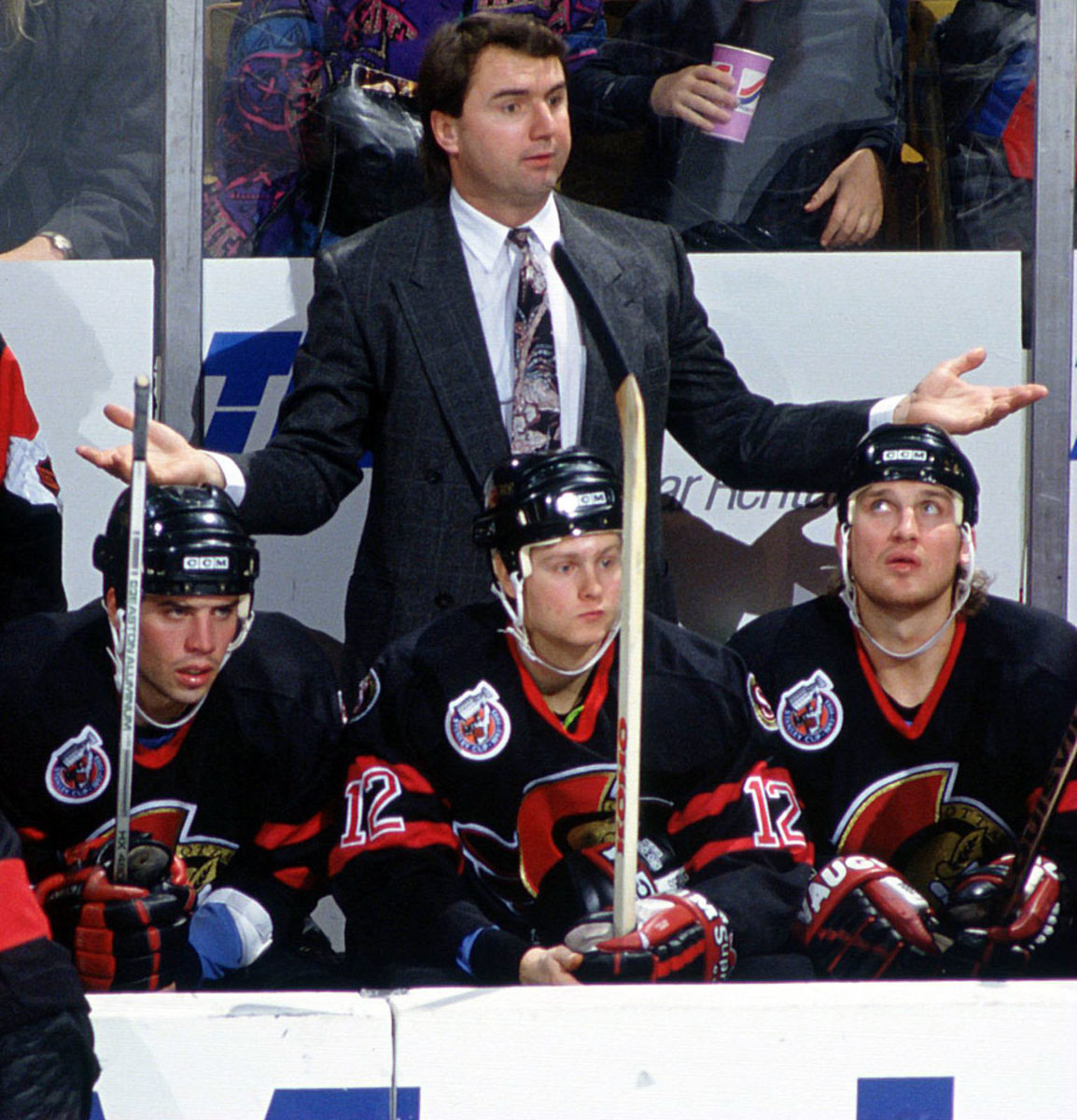
Named after Ottawa’s original Senators, who won 11 Stanley Cups, the new franchise was an attractive choice for the NHL due to its passionate fan base, existing arena and plan for a new facility. After four rocky losing seasons, the Sens became consistently competitive and reached the Stanley Cup Final in 2007. Despite some recent poor showings, the team remains stable with good support and a committed owner in Eugene Melnyk, though there have been reports that he is seeking a minority partner who could eventually take control. All-time regular season record: 741-699-115-103; Postseason appearances: 14; Stanley Cups: 0
Tampa Bay Lightning | 1992
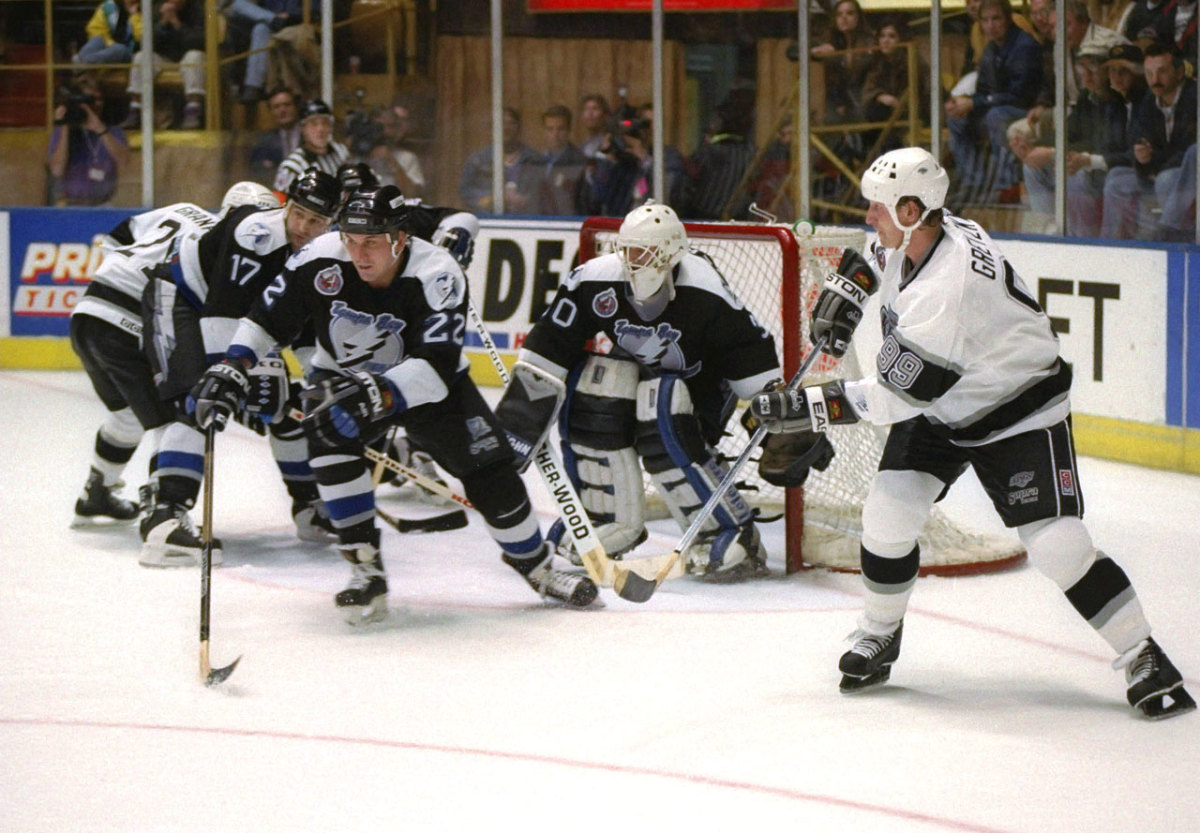
The NHL’s first foray into Florida, the franchise was awarded to an ownership group fronted by Hall of Famer Phil Esposito, who became GM and president. The Lightning played their first season in Tampa’s 11,000-seat Expo Hall at the Florida State Fairgrounds and later moved to the baseball-friendly Suncoast Dome. Dicey ownership and debt left the Bolts on the verge of being taken over by the NHL while they struggled to become a consistent playoff team. Financial losses and ownership changes have continued, but the team’s 2004 Stanley Cup win and recent return to competitiveness have helped keep the Bolts in place. All-time regular season record: 652-785-112-109; Postseason appearances: 7; Stanley Cups: 1
Mighty Ducks of Anaheim | 1993
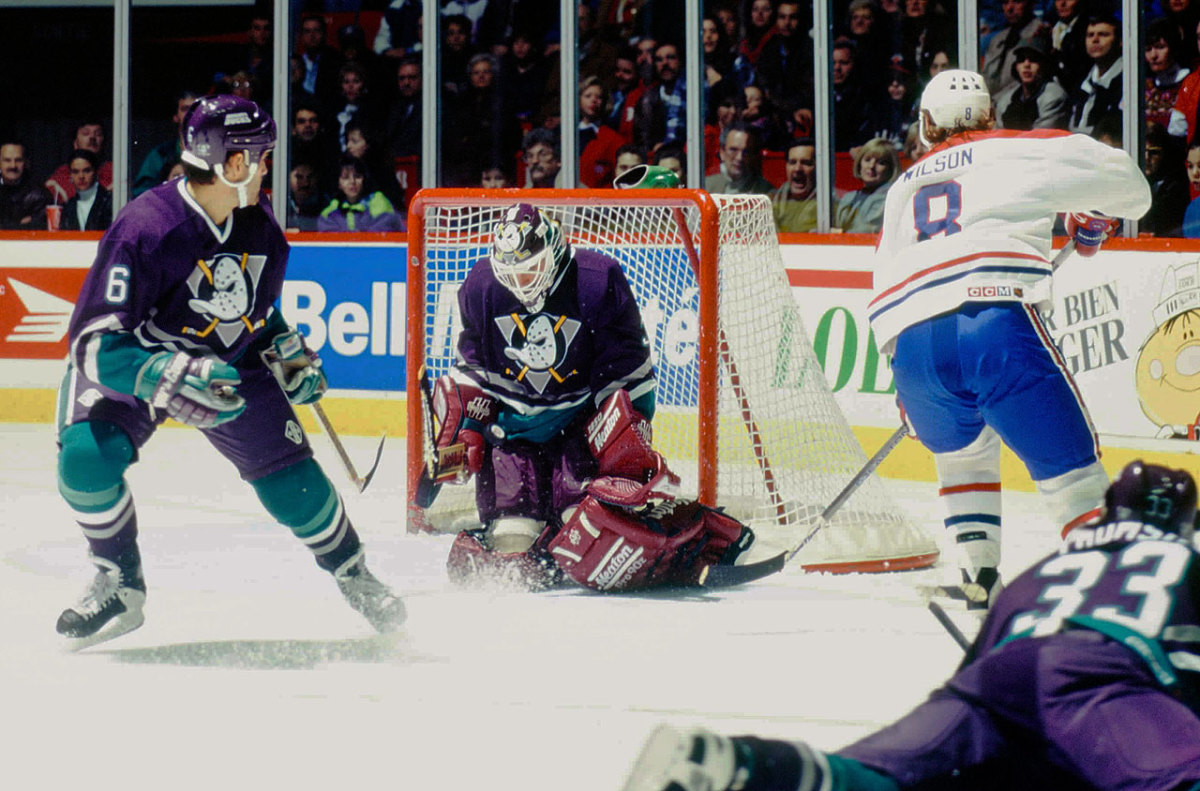
Awarded to The Walt Disney Company, their named based on a popular movie, the Ducks had a brand new arena and local rivalry with the LA Kings awaiting them. Since their very respectable 33-46-5 first season, they have enjoyed significant success, appearing in the Stanley Cup Final twice and, in 2007, becoming the first California-based NHL team to win the chalice. They remain blessed with solid ownership and a roster that is considered a solid Cup contender. All-time regular-season record: 722-637-107-108; Postseason appearances: 10; Stanley Cups: 1
Florida Panthers | 1993
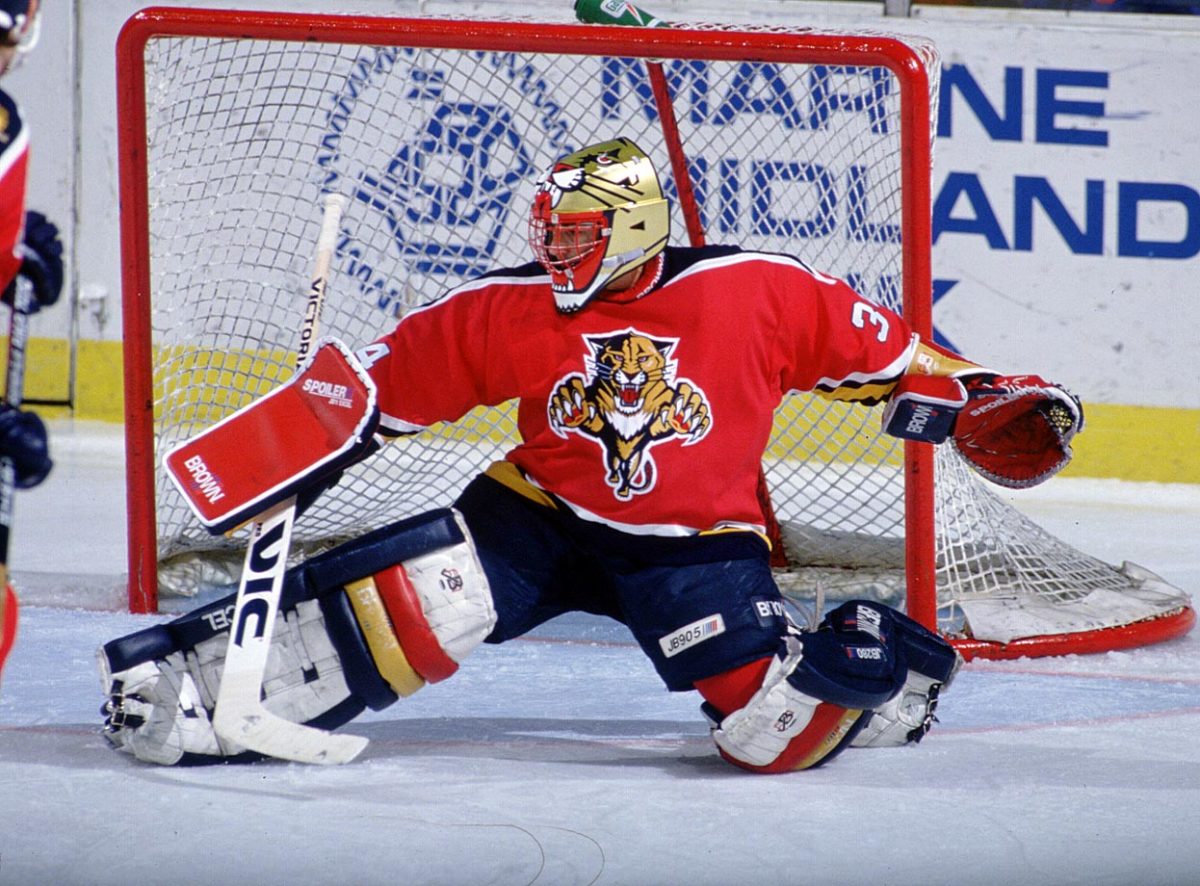
The second franchise to set up shop in Florida has battled long stretches of mediocrity, poor management, and the Miami area’s stiff competition for entertainment dollars. One of the few bright spots: a surprise trip to the 1996 Stanley Cup Final by a team assembled by Bill Torrey, the architect of the Islanders dynasty. But Florida’s new owners, who claim to be losing $30 million per year, have decried the team’s business model as “not sustainable” and are seeking more tax revenue from Broward County. No wonder the Panthers are often considered ripe for relocation. All-time regular season record: 617-677-142-138; Postseason appearances: 4; Stanley Cups: 0
Nashville Predators | 1998
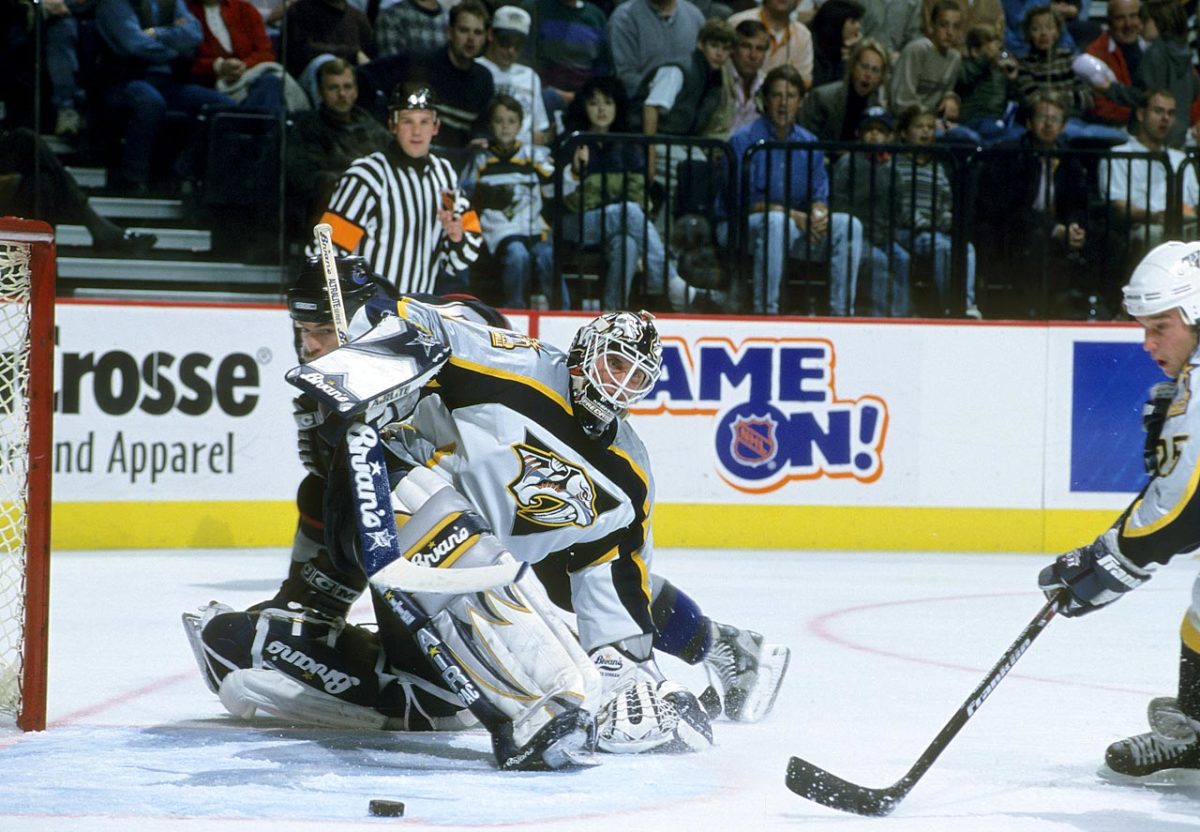
Thanks in part to a new arena and the city’s failure to lure the Devils from New Jersey, Nashville was awarded a new franchise in an expansion surge that saw the NHL also plant teams in Atlanta, Columbus, and Minneapolis-St. Paul. The Predators were the first of them to take the ice and the ensuing years have seen a string of steady if unremarkable teams, relocation rumors, ownership change and controversy (Boots Del Biaggio’s bankruptcy and fraud conviction), and attempts to drum up fan support. But the Preds continue to hang in there. All-time regular season record: 557-479-60-100; Playoff appearances: 7; Stanley Cups: 0
Atlanta Thrashers | 1999
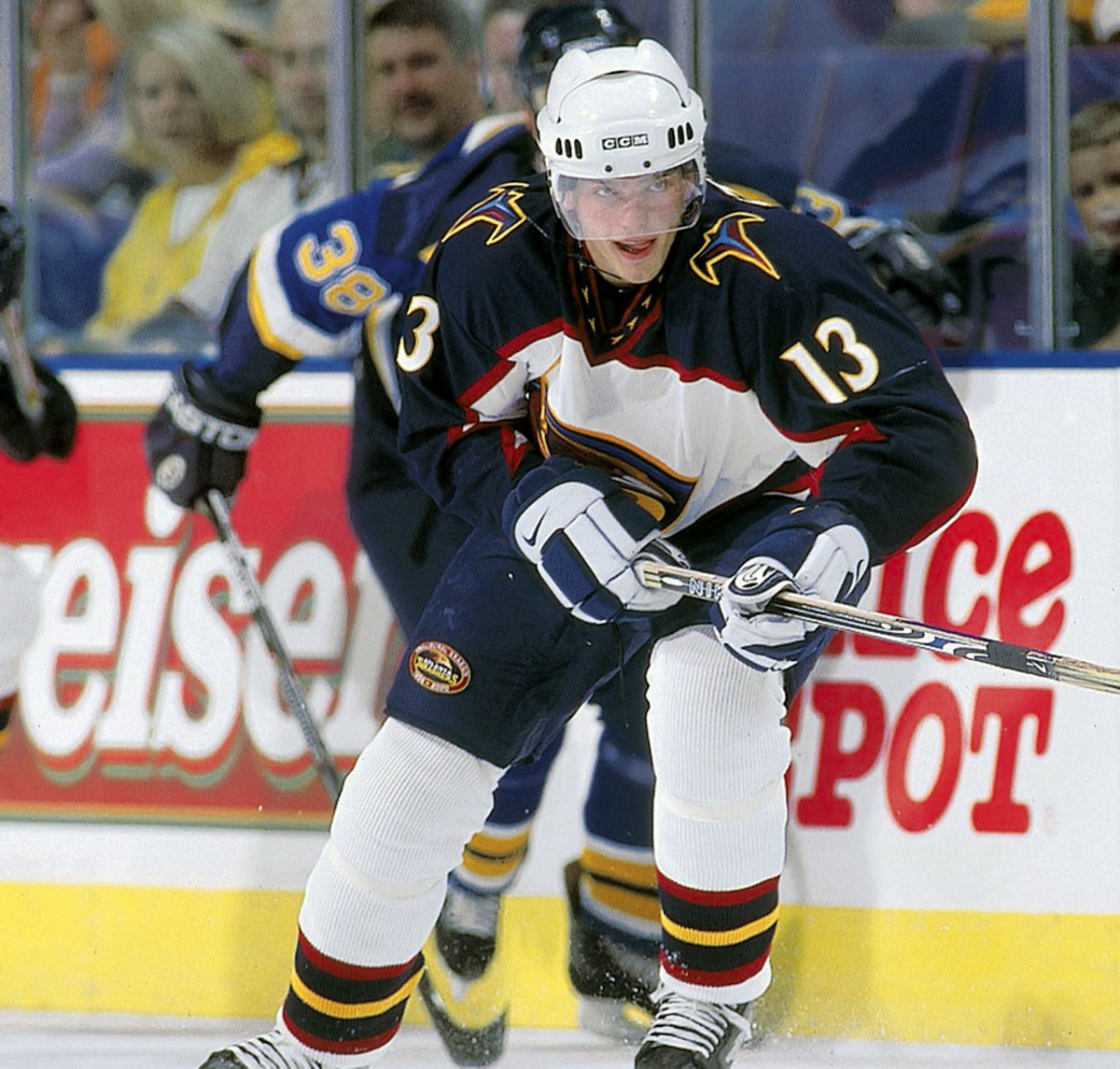
The NHL’s return to Atlanta went no better than its first go-round with the Flames. Cursed by poor management, consistent mediocrity, and an understandably apathetic fan base, the second team to take the ice in the NHL’s most recent expansion surge managed to make the playoffs only once in 11 seasons before being sold. The new group moved the team to Winnipeg, where it was warmly received and renamed the Jets. However, the team remains consistently mediocre and the question now is how long the honeymoon will last. All-time regular season record: 440-528-45-101; Playoff appearances: 1; Stanley Cups: 0
Columbus Blue Jackets | 2000
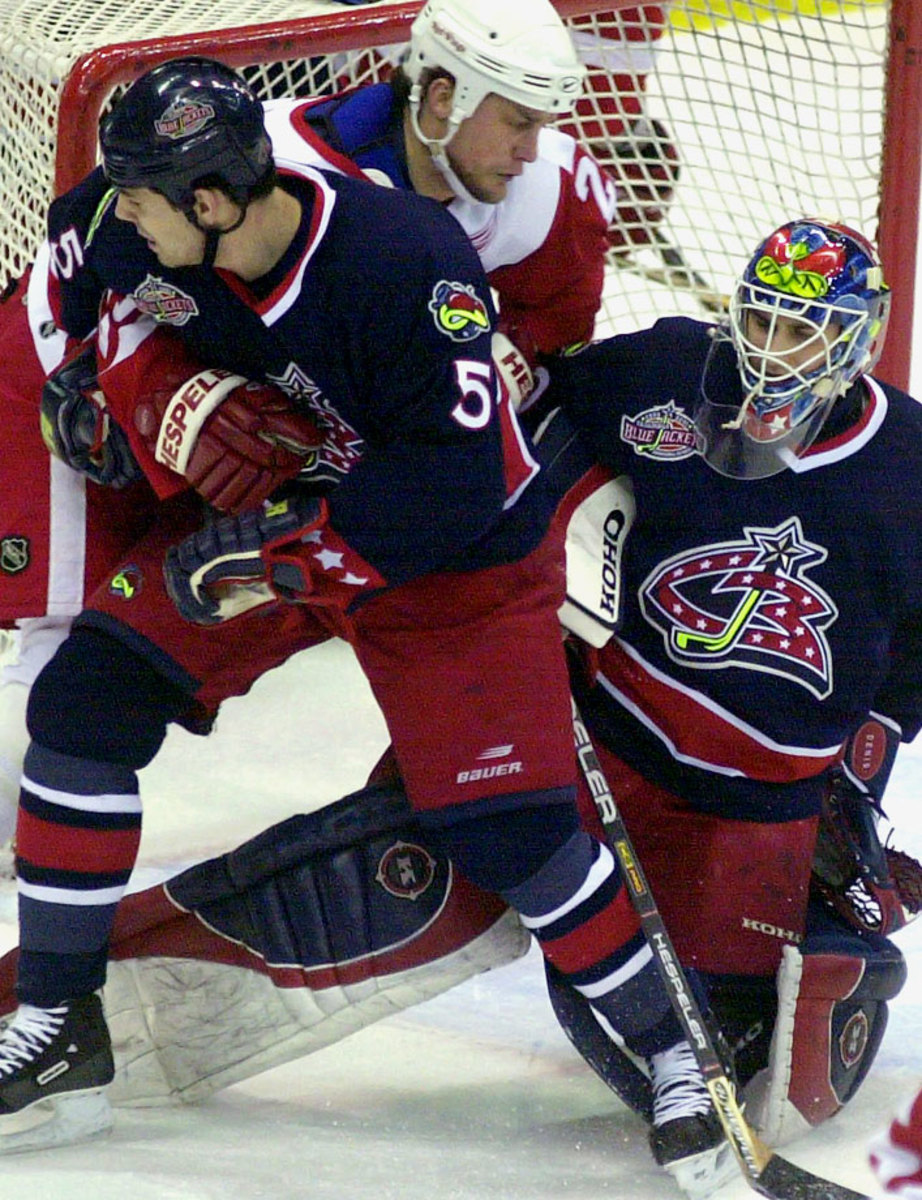
An arena issue forced Columbus into a battle to acquire what is now the NHL’s least valuable franchise ($175 million, according to Forbes). During their history, the Blue Jackets have been consistently non-descript, frequently lacking star power and suffering from poor management. Their fortunes are looking brighter due to the arrival in the past year of savvy hockey ops president John Davidson and respected GM Jarmo Kekalainen. All-time regular season record: 409-490-33-100; Playoff appearances: 2; Stanley Cups: 0
Minnesota Wild | 2000
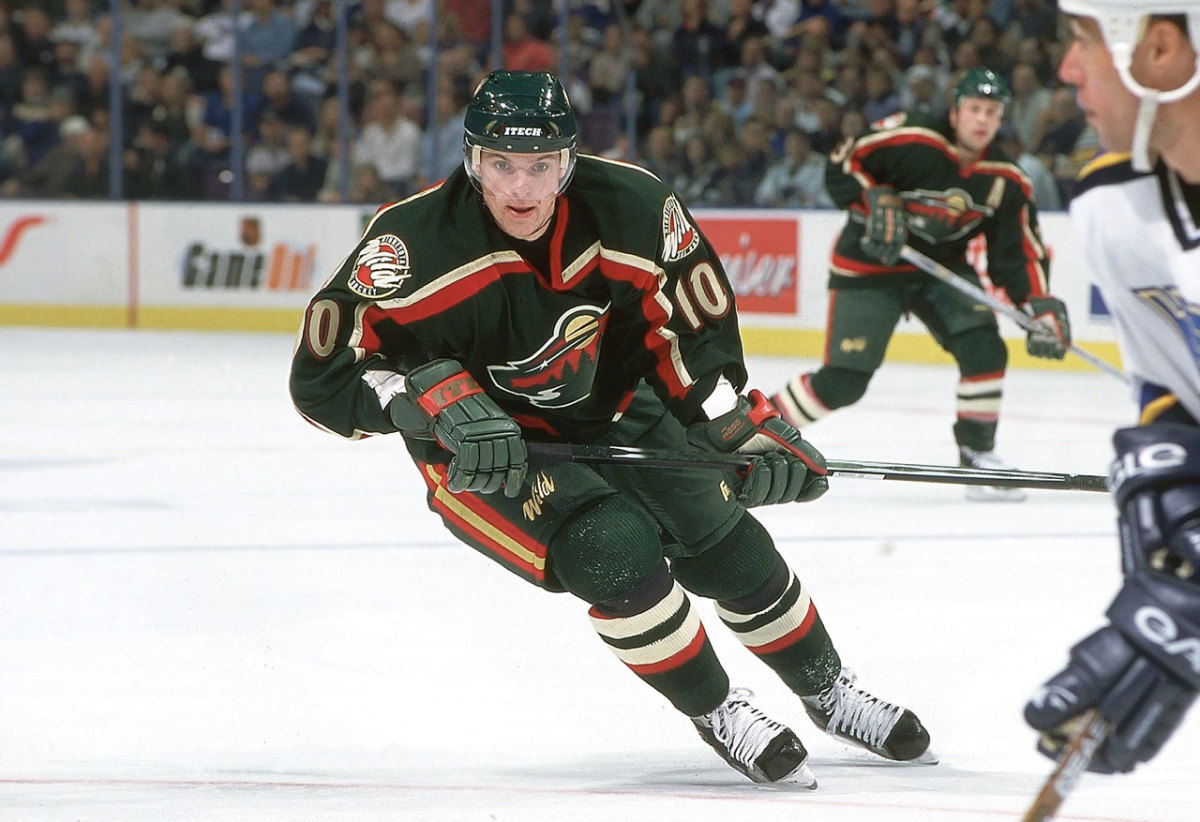
The league’s youngest expansion team took the ice three years after it was awarded in the NHL’s second stab at sticking in Minnesota. Now owned by a group led by Craig Leipold, who bought the Wild after selling the Predators in 2007, the Wild has struggled to make consistent postseason appearances. The high-priced additions of free agent stars Zach Parise and Ryan Suter in 2012 have spearheaded some marked improvement, as evidenced by the Wild’s upset of Colorado in the first round of the 2014 playoffs, but the team has yet to reach the conference final. Even so, its future in Minneapolis-St. Paul is hardly in doubt. All-time regular season record: 474-408-55-95; Playoff appearances: 5; Stanley Cups: 0
Hot links
• Brendan Shanahan has used the financial clout of Maple Leafs Sports and Entertainment to build what may be the largest front office group in the NHL. The question now: Will it get the Leafs any closer to the playoffs?
• Someone hockey’d up the first Star Wars: The Force Awakens trailer. It is insane.
• Andrew Hammond of the Senators pays tribute to Jonathan Pitre with his new mask design. Awesome.
• A pair of scouts debate the wisdom of selecting Zach Senyshyn, the most controversial pick in the 2015 draft.
• Sure, you know the Golden Jet and the Hammer, but what about Tumba, Fats and Apple Cheeks? Check out this hockey nickname quiz.
• With three AHL franchises moving west to California for the 2015-16 season, the biggest beneficiary could be youth hockey programs scattered throughout the Golden State.
• Is this what a new three-stripe Adidas NHL jersey might look like? If so, woof!
GALLERY: Ads we'd like to see on NHL jerseys
Ads We'd Like to See on NHL Jerseys
Washington Capitals
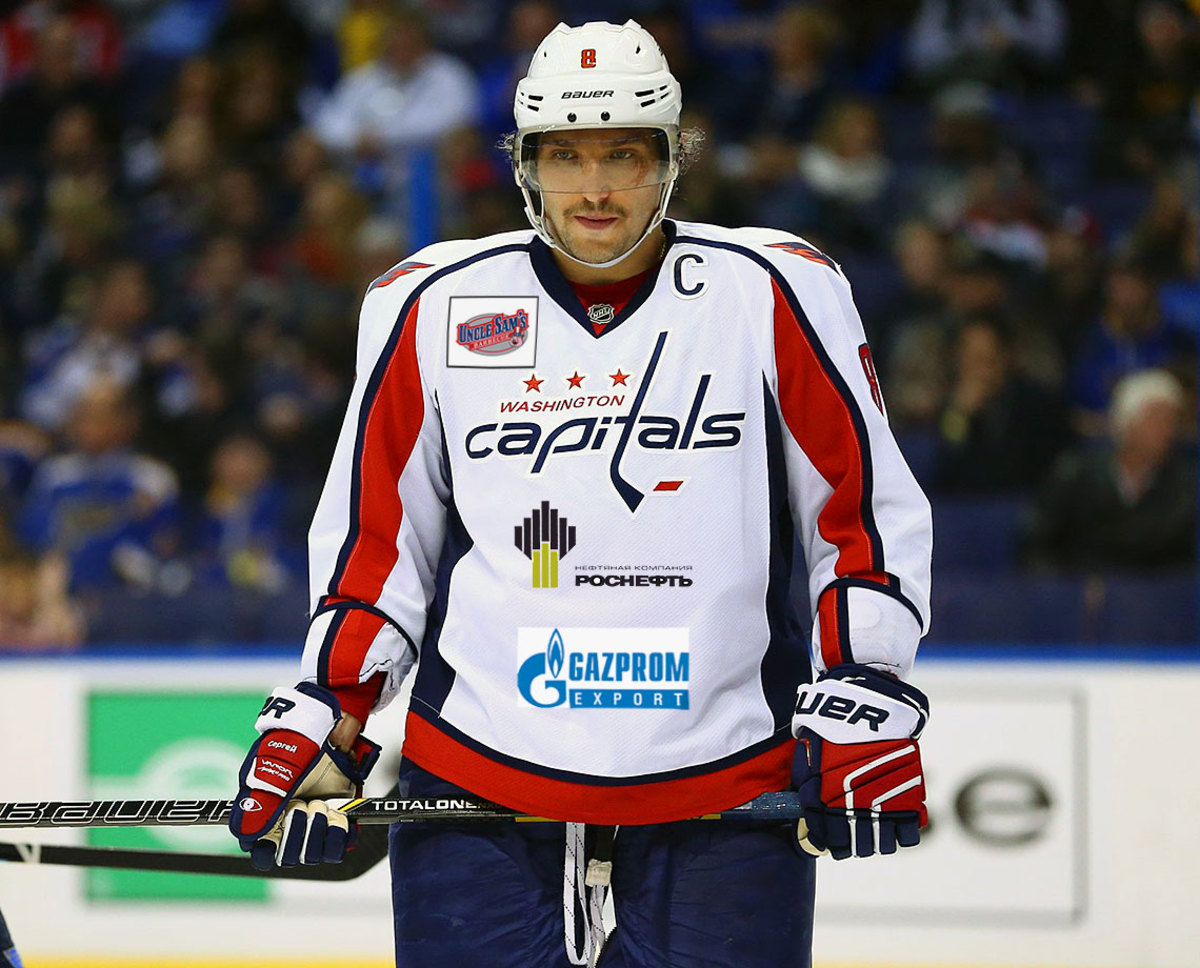
Los Angeles Kings
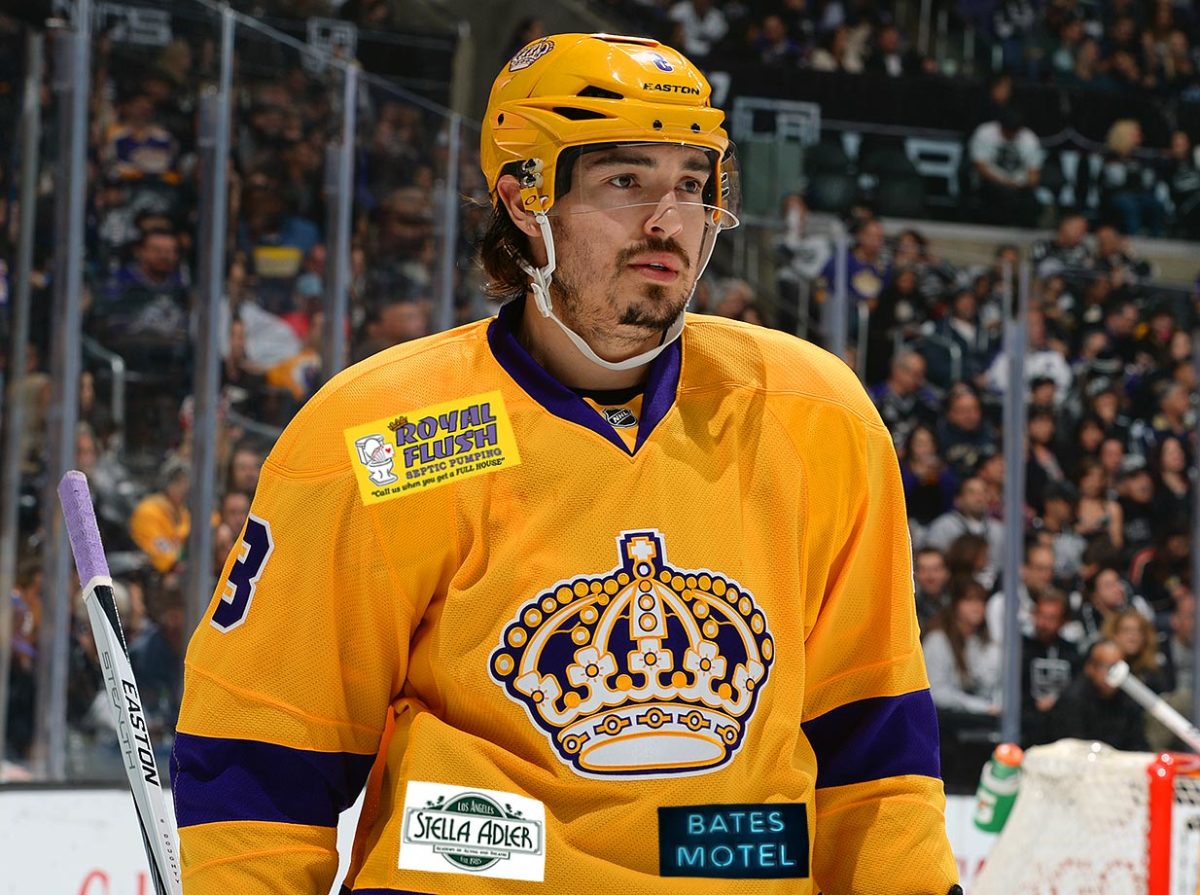
Columbus Blue Jackets
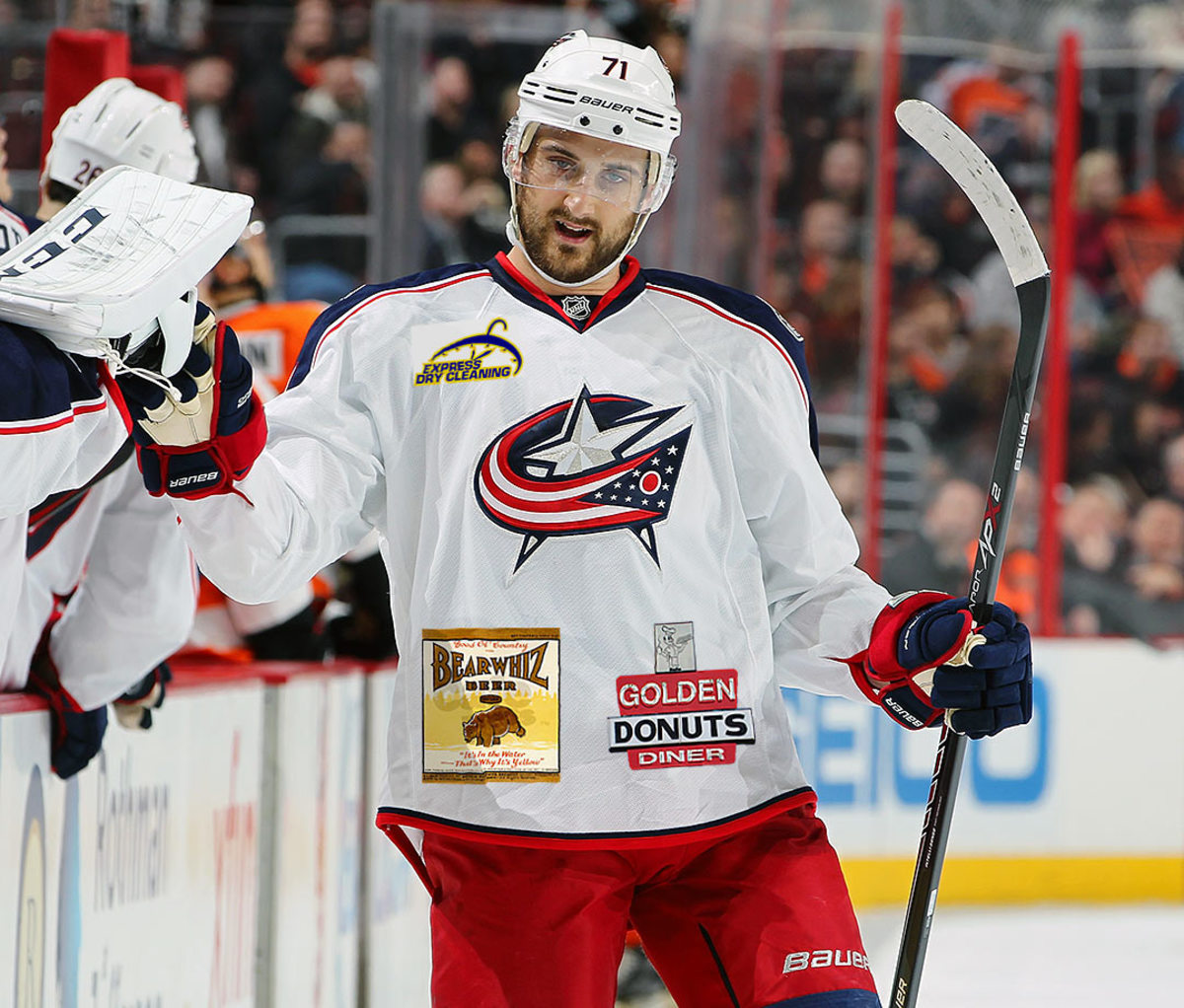
Florida Panthers
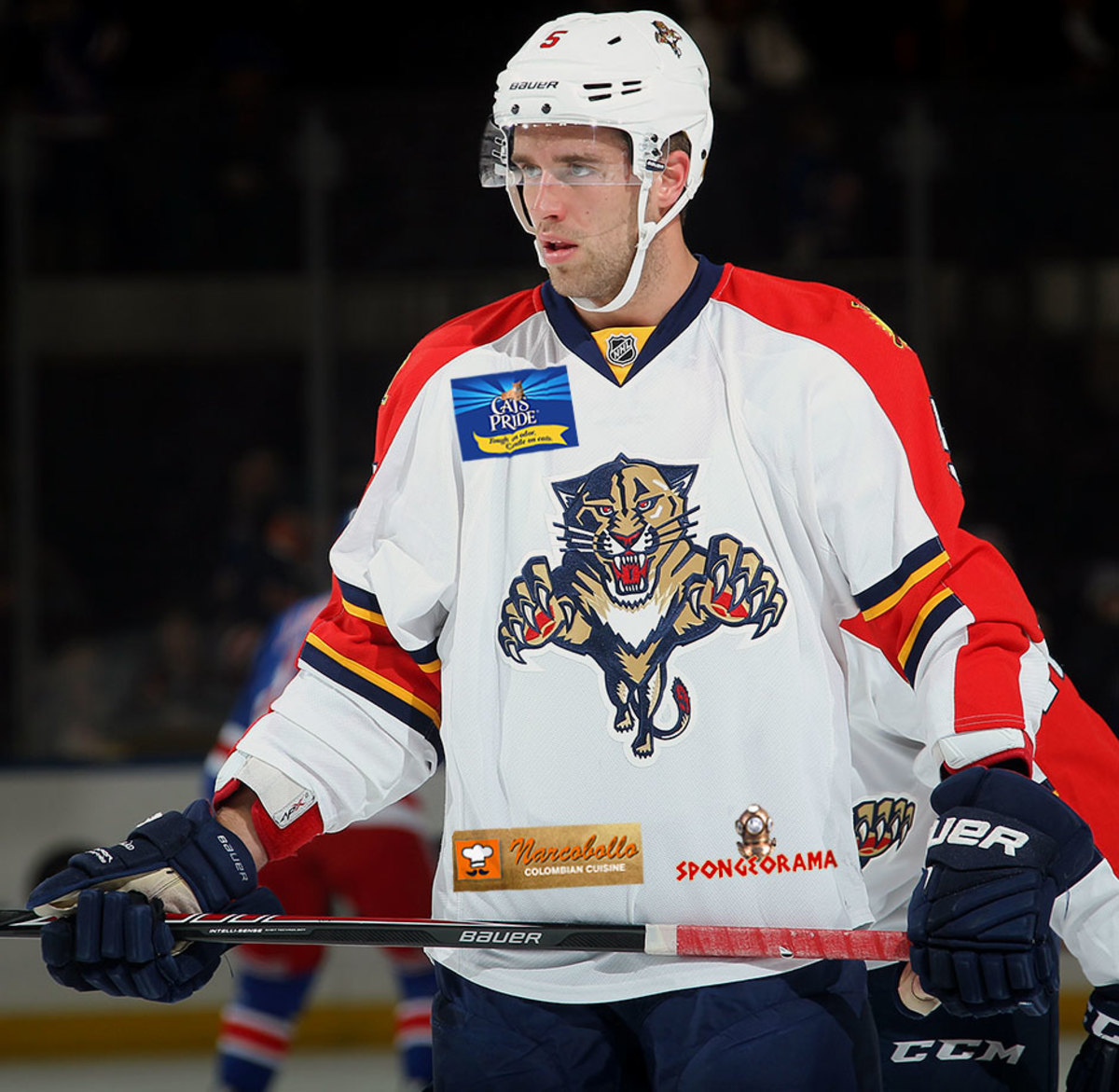
Boston Bruins

Detroit Red Wings
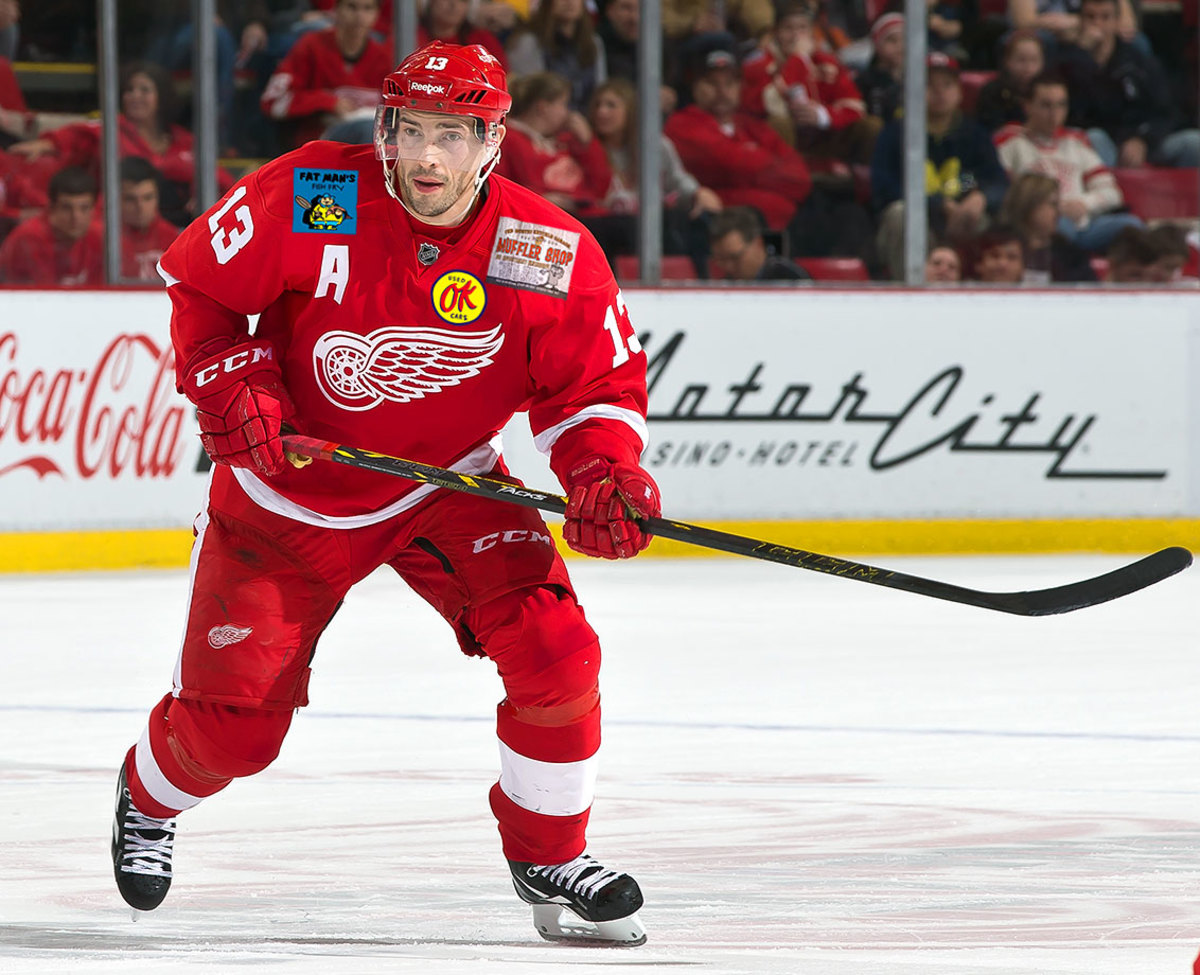
Montreal Canadiens
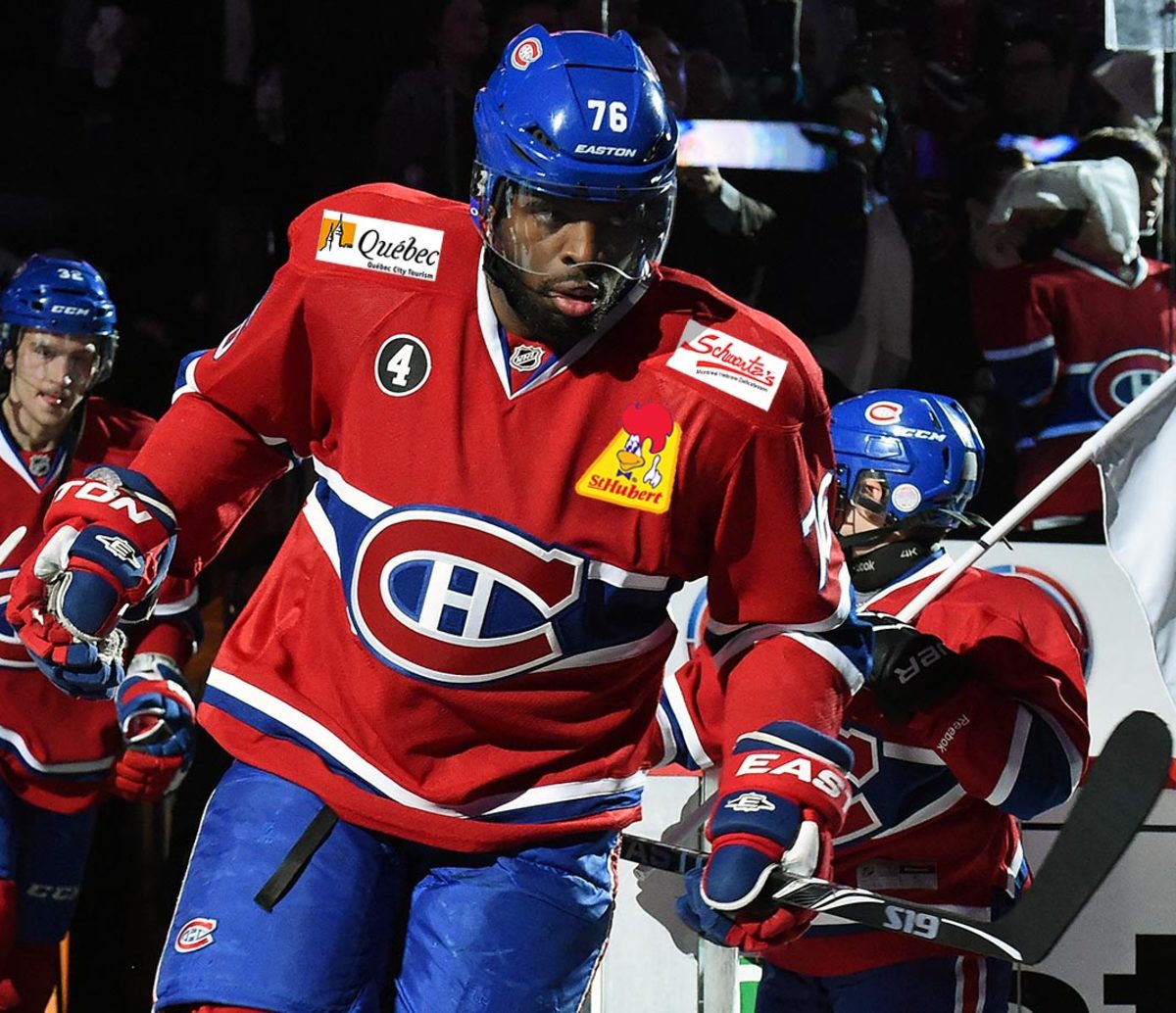
Dallas Stars

New York Rangers
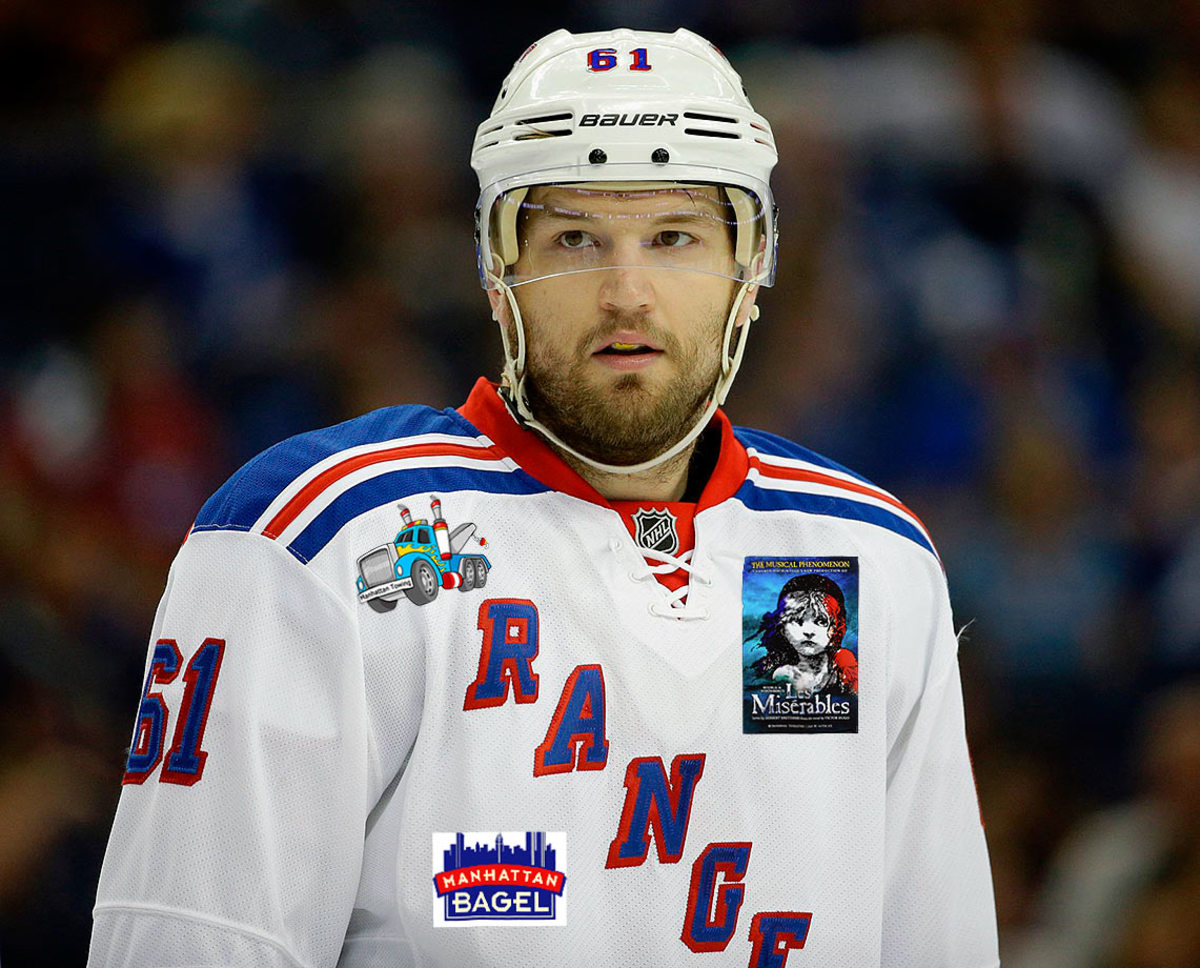
New York Islanders
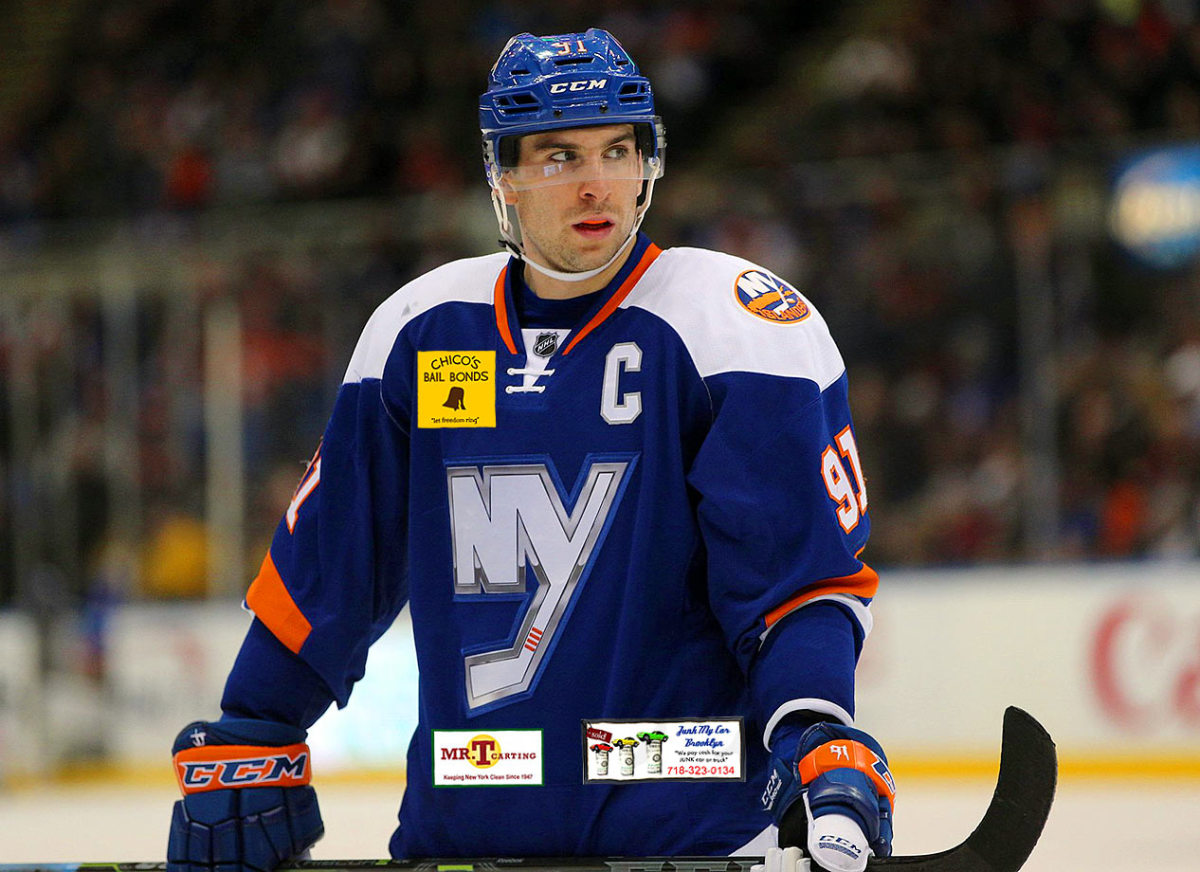
Toronto Maple Leafs

Chicago Blackhawks

Carolina Hurricanes
